22 backyard privacy ideas to create a secluded yet stylish space with
Try these beautiful backyard privacy ideas to block your neighbors out
Eve Smallman
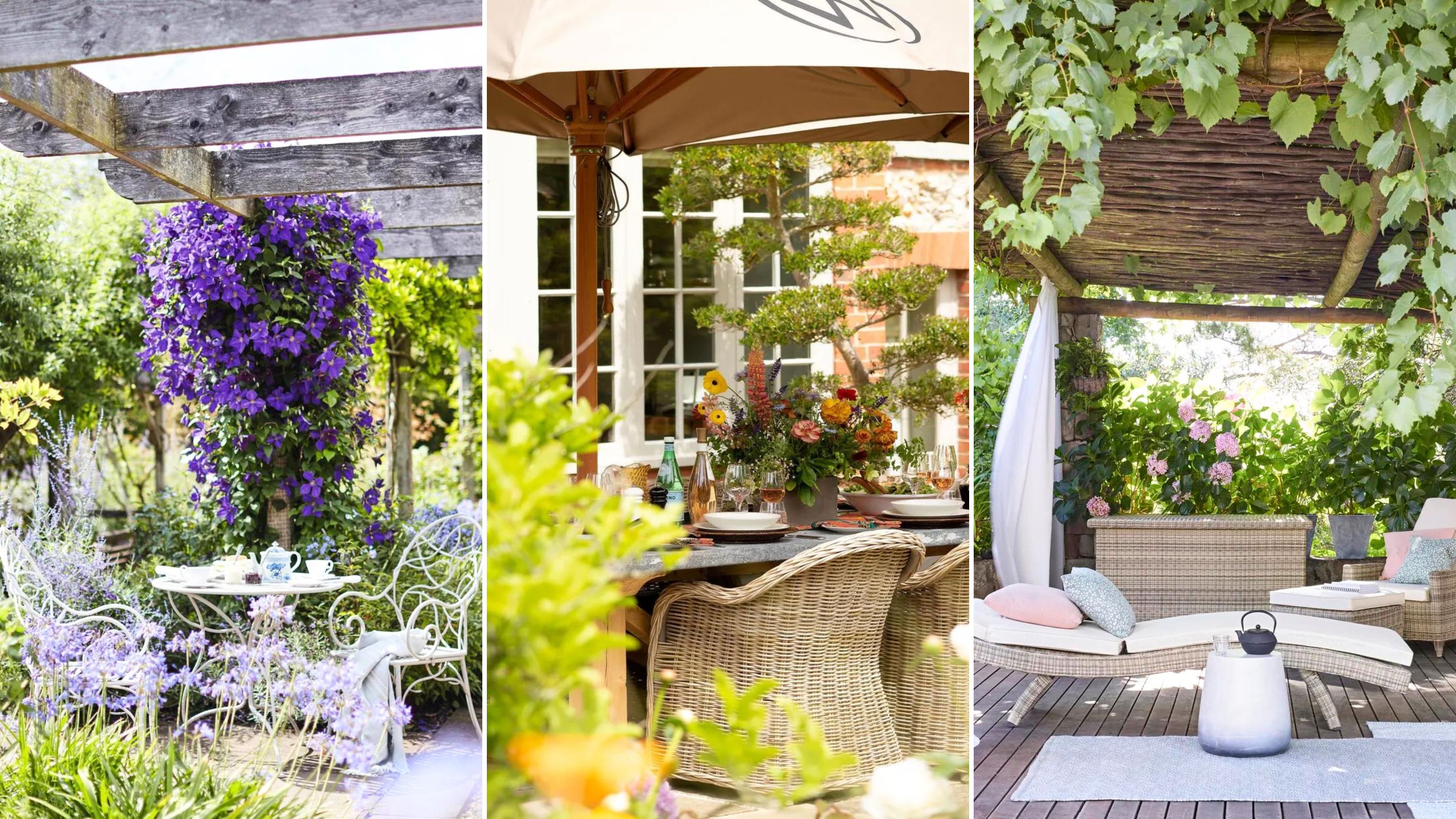
- 1. Work with your garden's boundaries
- 2. Try oversized planters
- 3. Be clever with garden furniture
- 4. Balance evergreens and deciduous options
- 5. Utilize a sloping garden
- 6. Layer containers
- 7. Use a canopy or shade
- 8. Add a privacy screen
- 9. Consider the position of outbuildings
- 10. Choose low seating
- 11. Choose climbers
- 12. Set up an outdoor cinema
- 13. Plant fast-growing annuals
- 14. Plant tall bi-annuals
- 15. Greenify a garden trellis
- 16. Install a water feature
- 17. Add a pergola
- 18. Maximize bamboo
- 19. Add curtains
- 20. Consider a potting shelter
- 21. Go overgrown
- 22. Vary table heights
- FAQs
Get small space home decor ideas, celeb inspiration, DIY tips and more, straight to your inbox!
You are now subscribed
Your newsletter sign-up was successful
Backyard privacy ideas will help you create a more secluded and cozy outdoor space. While adding fencing and screening are the most traditional and easiest ways to do this, they're not the only ones.
Whether you already have a screen or fence or just want to try a more natural design scheme, we've asked pros what you can do. Think tall-growing plants, living walls, and clever garden furniture.
There are plenty of backyard ideas out there that will soften and enhance the look of your outdoor space without blocking off natural light, disrupting your planting or, offending the neighbors.
Backyard privacy ideas to try in your space
No matter if you're searching for big or small backyard ideas, bringing privacy into your space will make it feel more secluded.
Our experts have suggested buys throughout, which we have shopped to help you get the look wherever possible.
The prices below were correct at the time of publishing this article.
1. Work with your garden's boundaries
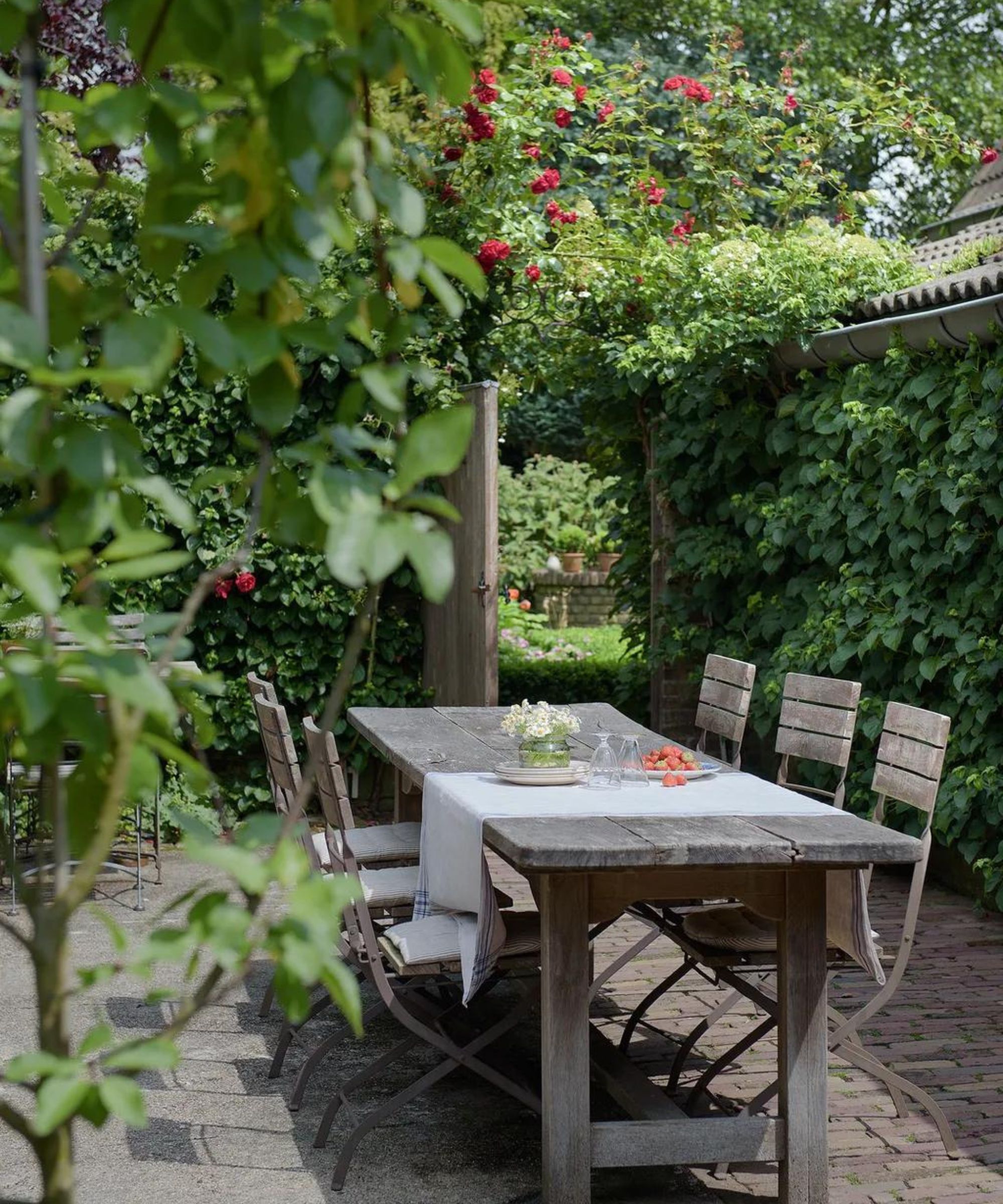
Working with your backyard's natural boundaries is one of the first things to consider when looking for more privacy in your space.
Get small space home decor ideas, celeb inspiration, DIY tips and more, straight to your inbox!
Depending on your garden's size, soil conditions and light levels, you could plant deciduous trees with light airy foliage such as Betula, Amelanchier, Cornus, Malus, Prunus, Acer and Sorbus.
This can provide gentle screening on a boundary area, yet still let some sunlight through. You can help these thrive with fertilizer such as Jobe's Fertilizer on Amazon.
At this stage if you already know you want or need to add a boundary wall, you can start getting that project underway.
2. Try oversized planters
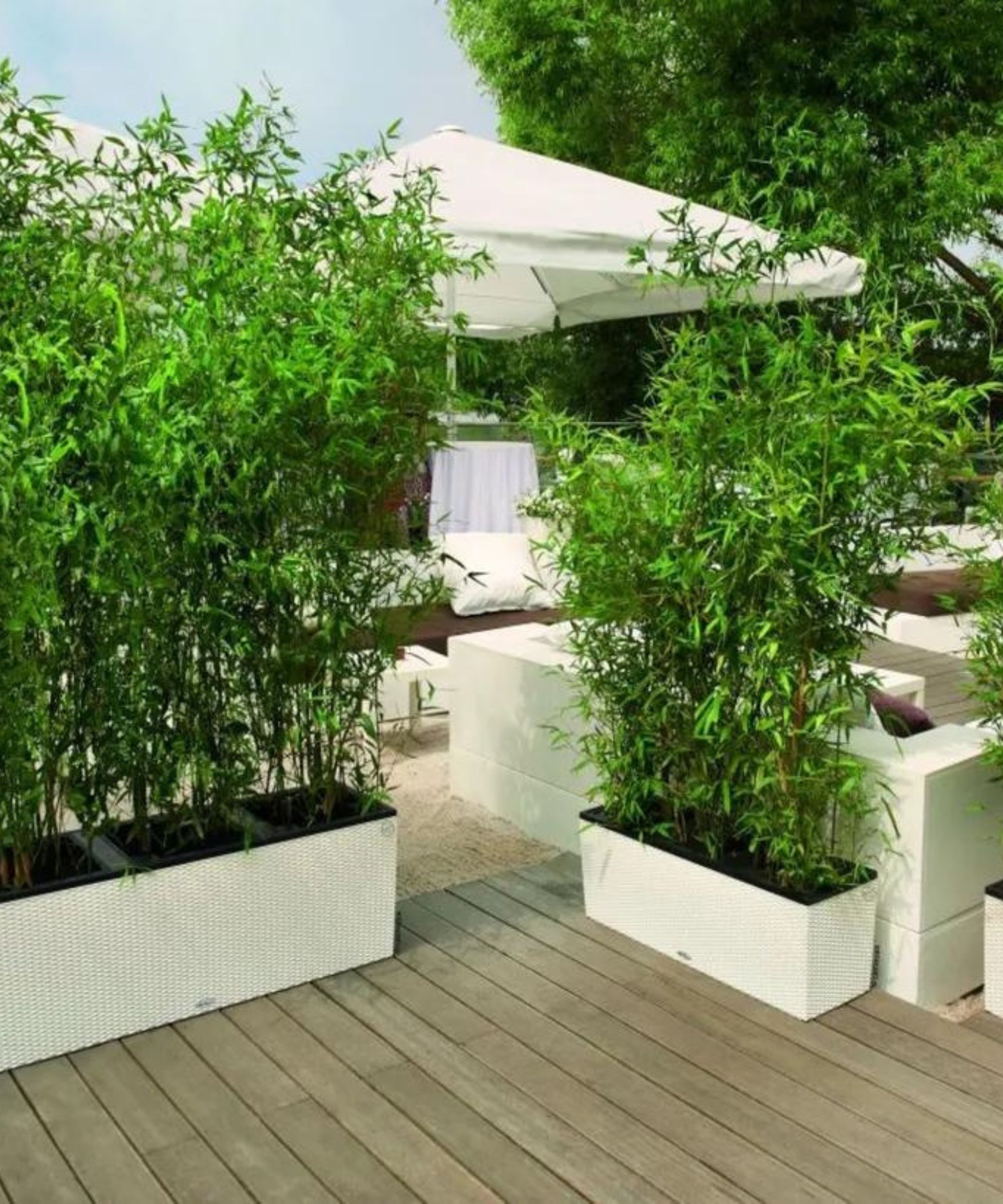
By using container gardening for small spaces, you can create privacy in your garden.
“Using tall shrubs in large planters create a natural barrier between your backyard and neighbors, giving the yard a nice look while keeping it private,” says Dan Bailey, president of WikiLawn Austin Lawn Care.
All you need to do is invest in oversized pots or planters (these The HC Companies Planters are Amazon's Choice) and plant up some tall-growing plant species.
3. Be clever with garden furniture
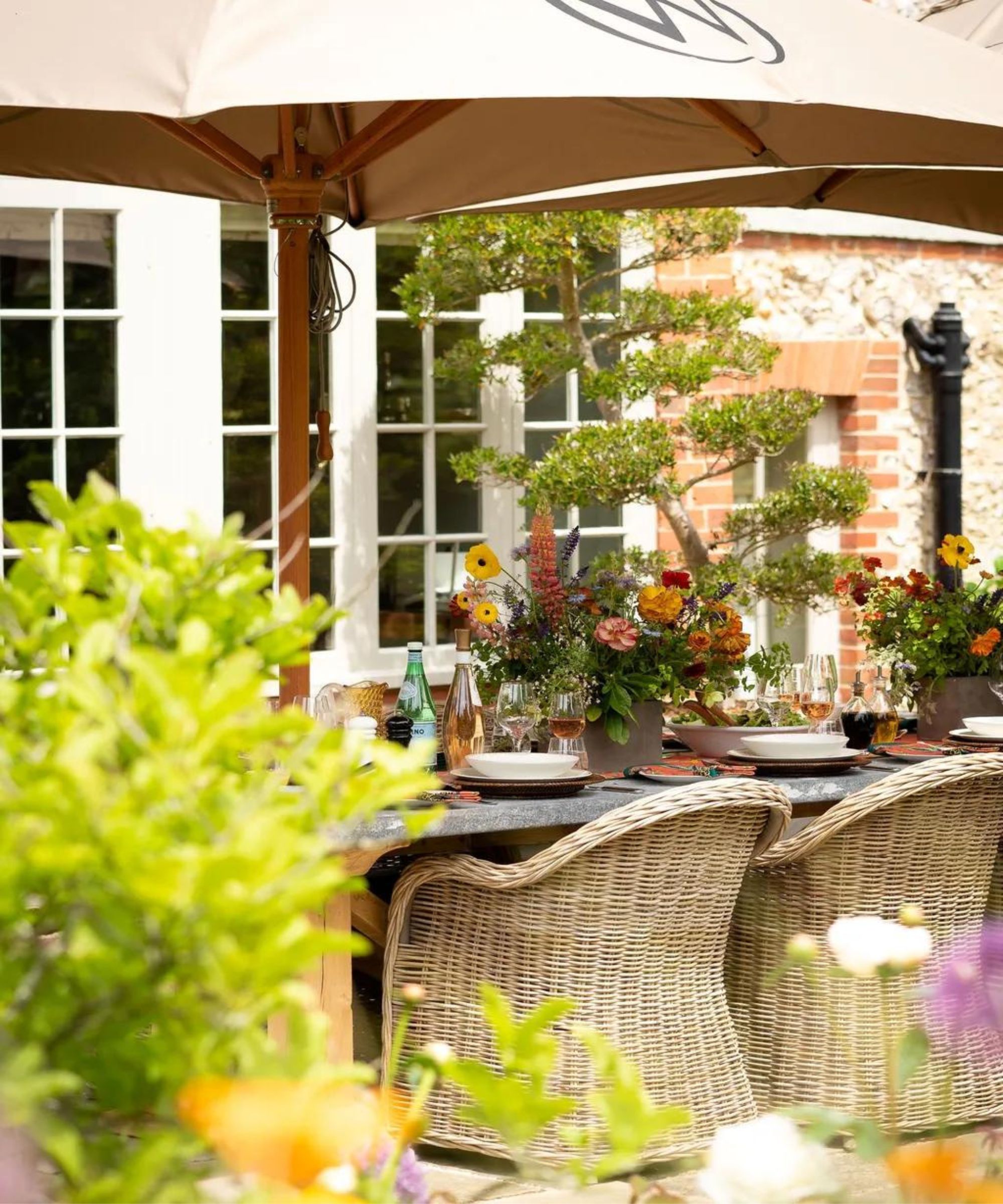
The best outdoor furniture will not only make your space more comfortable for outdoor dining ideas, but will also enhance your garden's privacy.
As well as providing a practical space to sit and a central point for the eye to focus on, it can also provide patio privacy or partition to help you escape with.
Make sure to position the furniture away from any houses and choose large pieces you can comfortably sink into.
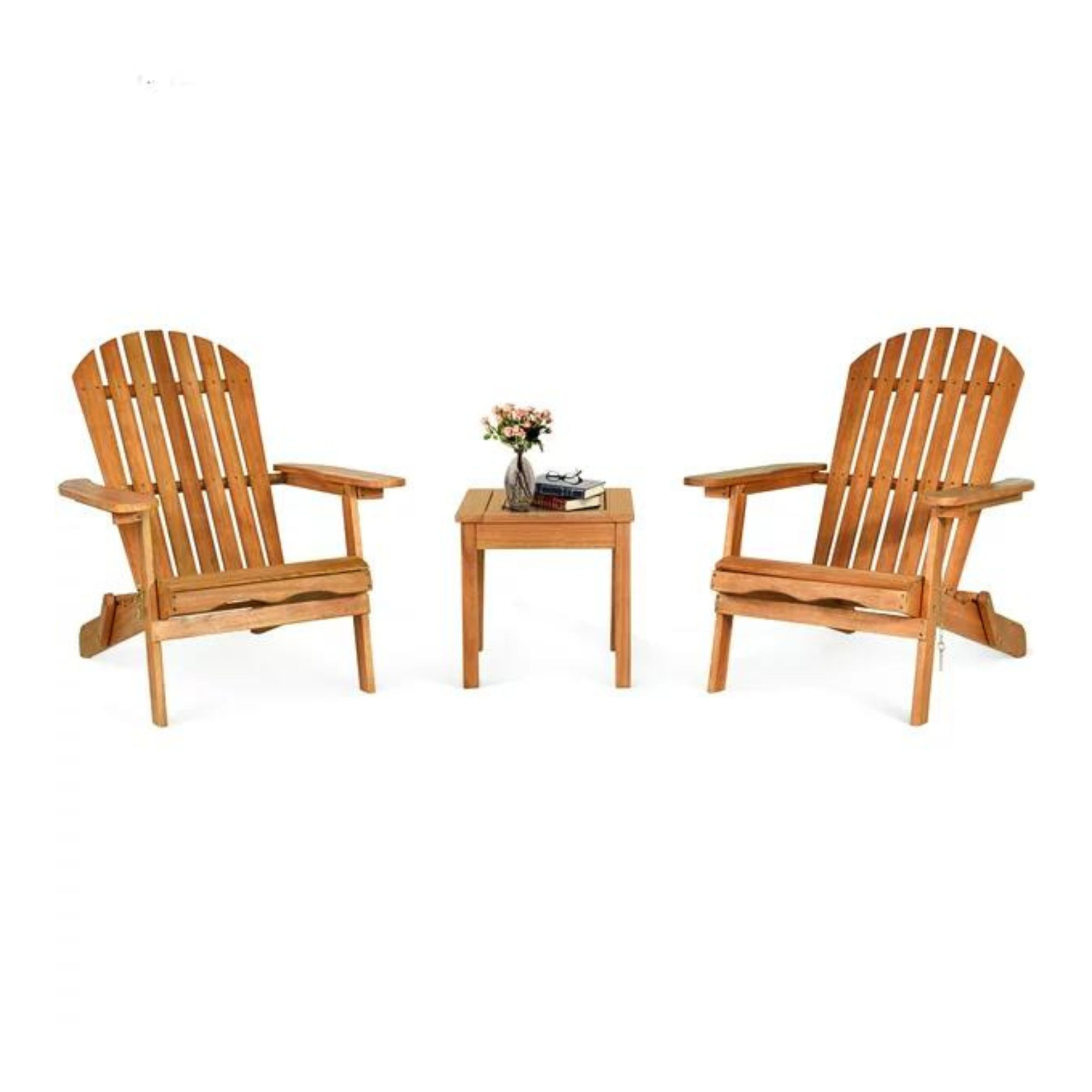
Size (in.): H35.5 x W28 x L34
Made from: Wood
Price: $209.99
The natural wood color will work in any garden, as will the chic, Hamptons style shape.
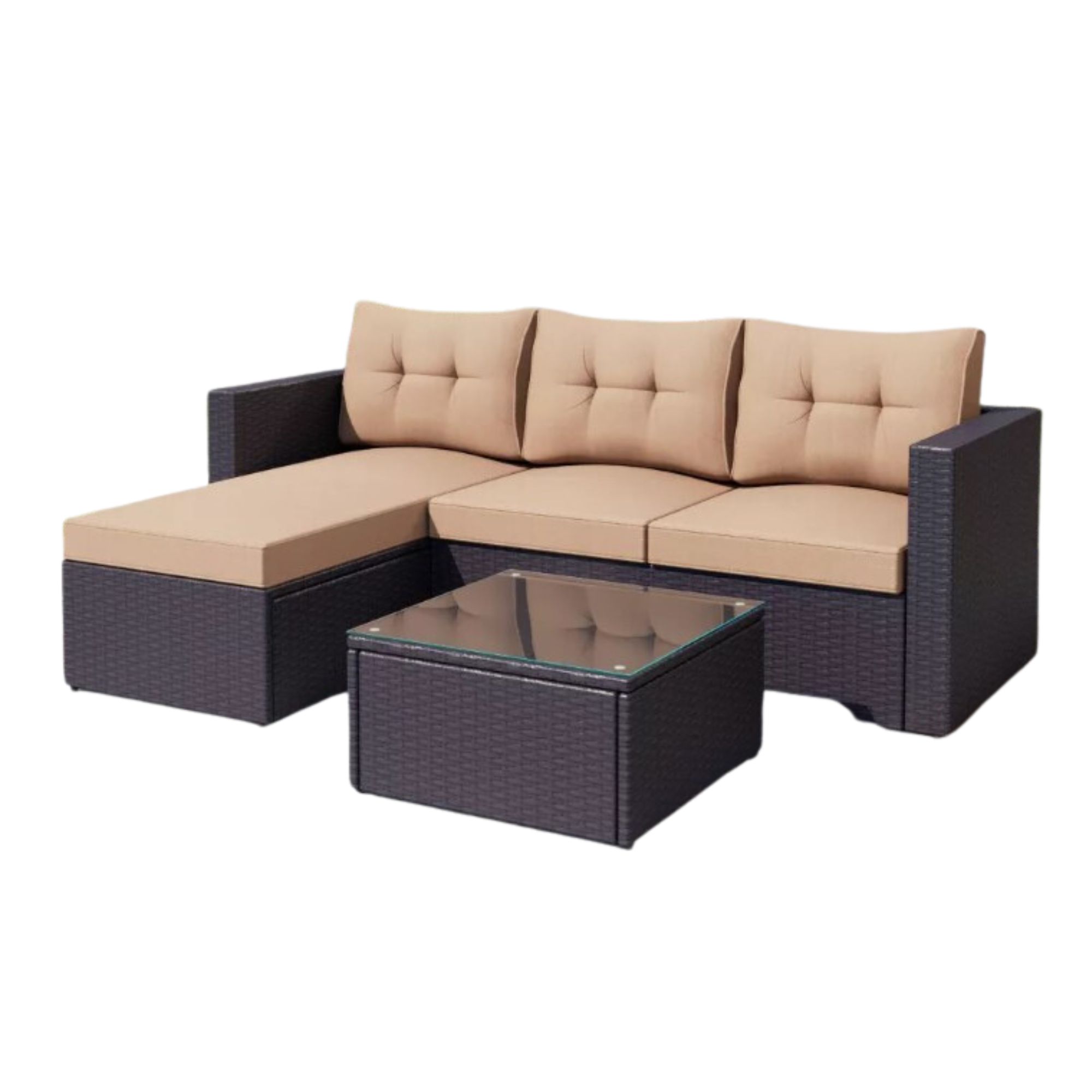
Size (in.): H24.4 x W51 x D28
Made from: Steel and wicker
Price: $389.99
Corner seats are a useful option for smaller backyards, as they’re easy to fit into snug spaces.
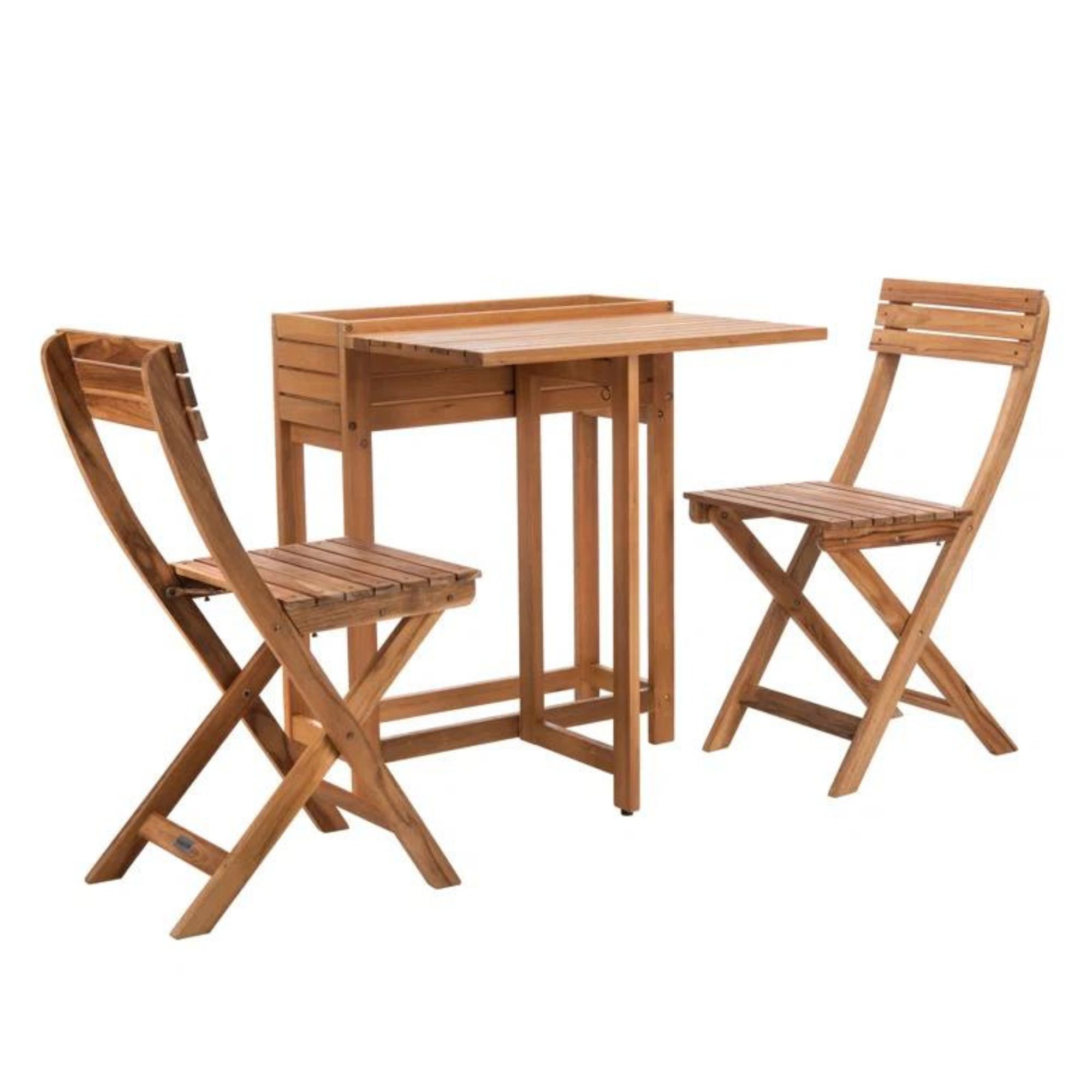
Size (in.): H31.1 x W15 x D11.81
Made from: Wood
Price: $239.99
Turn your terrace or balcony into an adorable outdoor dining space with this set fit with a shelf for all your bottles. Pair it up with the best bar cart accessories for a chic finish.
4. Balance evergreens and deciduous options
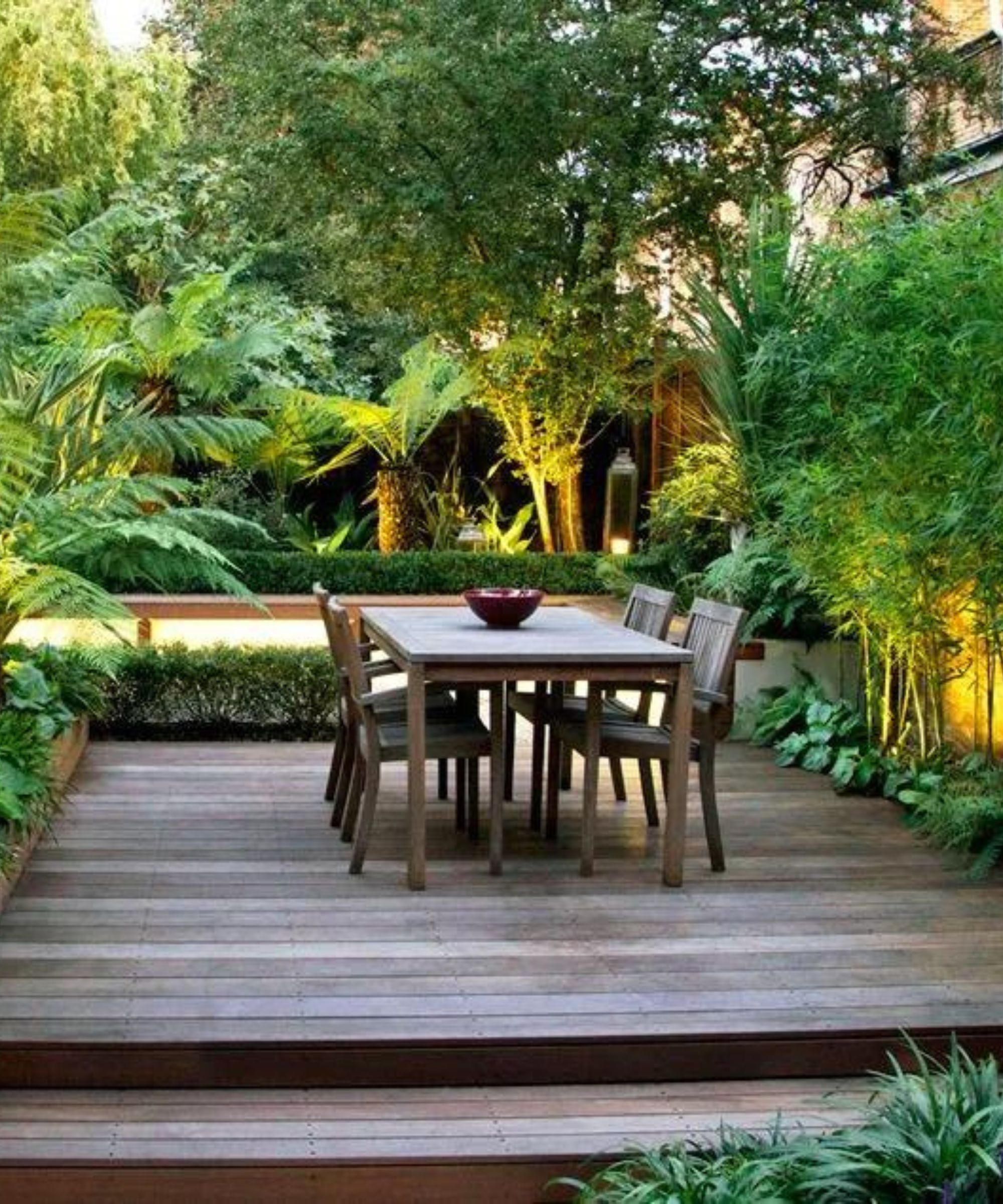
If you love the idea of full-on backyard privacy (and trees!), then choose a mix of deciduous trees with strategically placed evergreens. Learn how to care for ferns to add loads of greenery.
This will create a more balanced backyard privacy solution that will also give you gorgeous dappled light.
5. Utilize a sloping garden
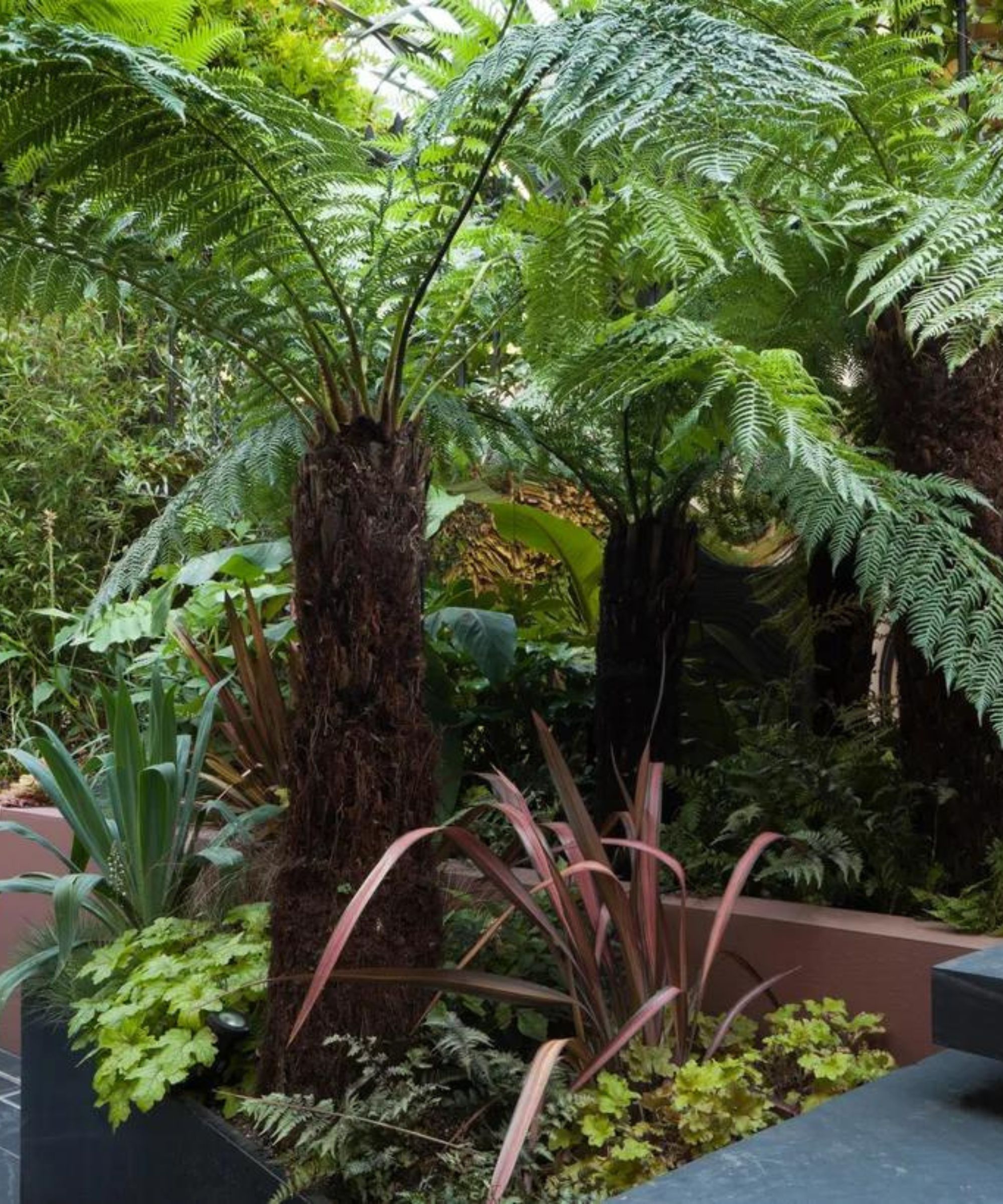
If your yard is sloped, you can use this in your favor for backyard privacy ideas. A retaining wall may be enough in itself, but add more greenery to that first level for heaps more interest, height, and, therefore, privacy.
You can also add tree ferns for additional screening, as they look wonderful in tiered and sunken backyards. For example, these Zqprca Cyathea Medullaris Plants from Walmart would add a tropical look.
This screening option is an effective sloping backyard idea that will work year-round.
6. Layer containers
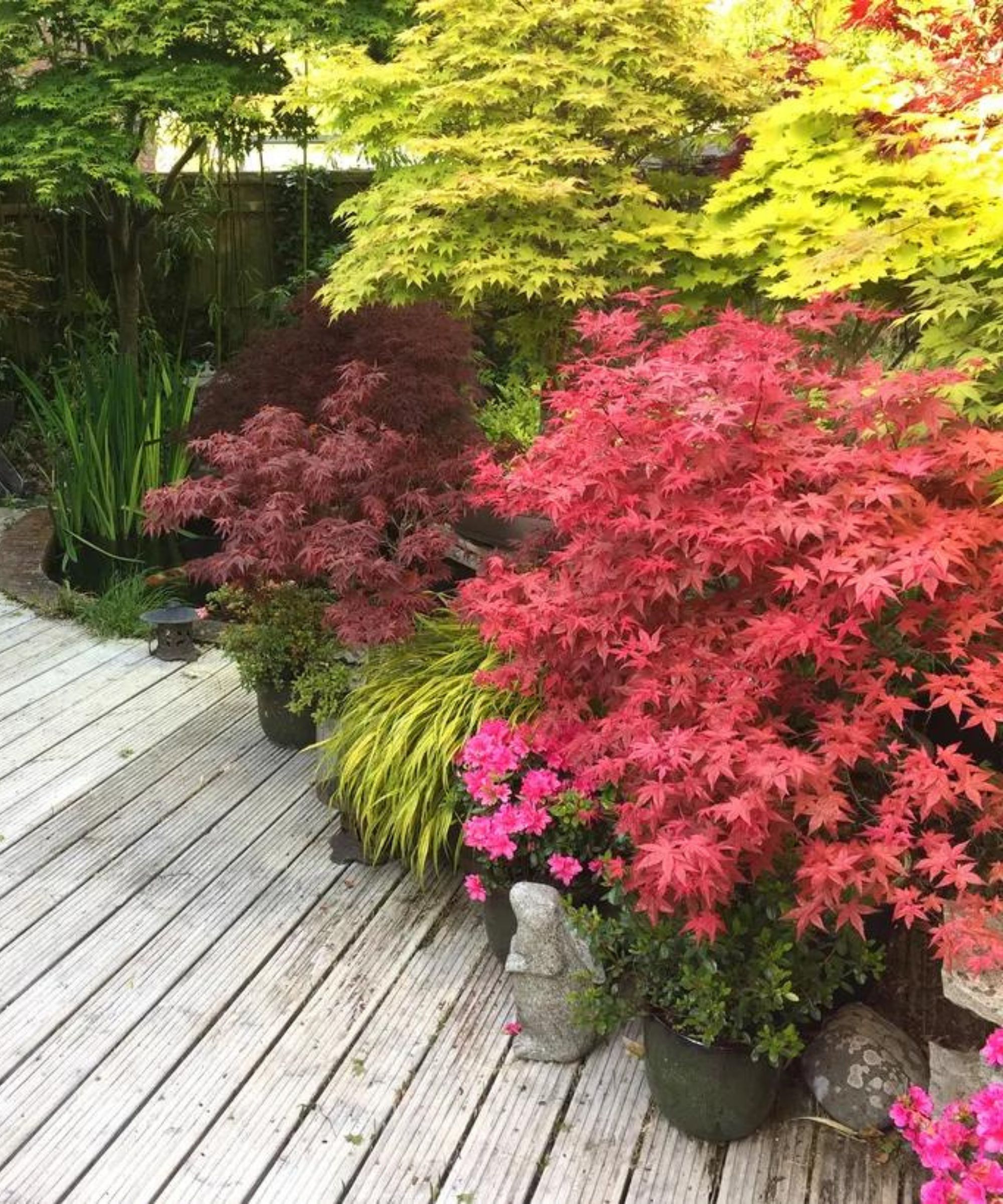
A collection of containers of different heights and sizes can be the perfect tool for more garden privacy.
“Choose pots of different sizes and plants of varying maturity, as this will give you both height and density to play with,” says Artem Kropovinsky, interior designer and founder of Arsight.
We recommend Japanese maples (such as these Simpson Nurseries Japanese Red Maples from Walmart) for backyard screening, due their bushy canopies and how well they do in containers.
7. Use a canopy or shade
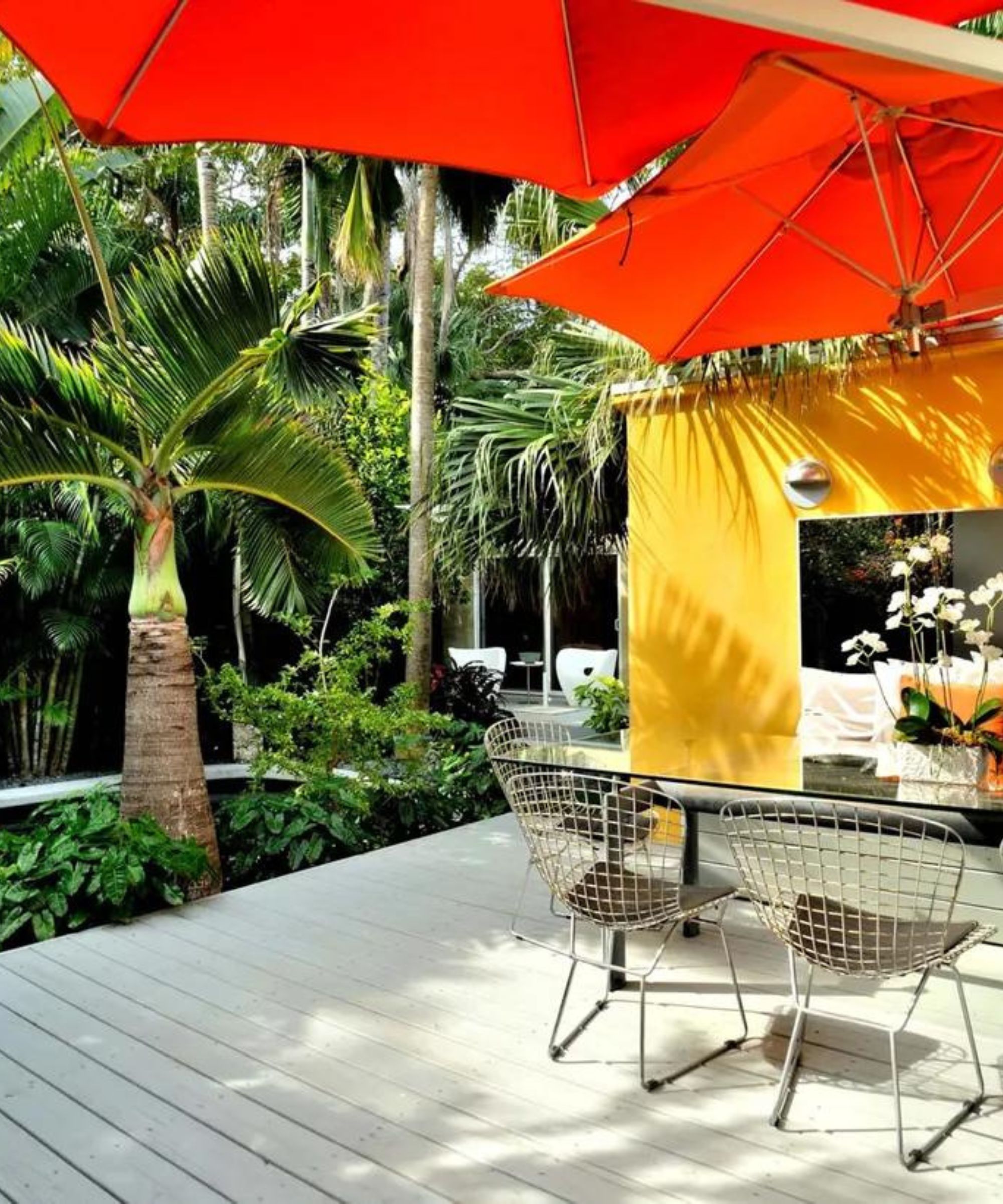
For a little cover, choose deck shade ideas to create privacy and luxe shade while you wine and dine.
“Canopies and umbrellas will add layers of visual interest while maintaining seclusion,” suggests Nina Lichtenstein, principal designer and founder of Nina’s Home Design.
She recommends opting for materials that complement your outdoor aesthetic, whether it's sleek and modern or rustic and charming.
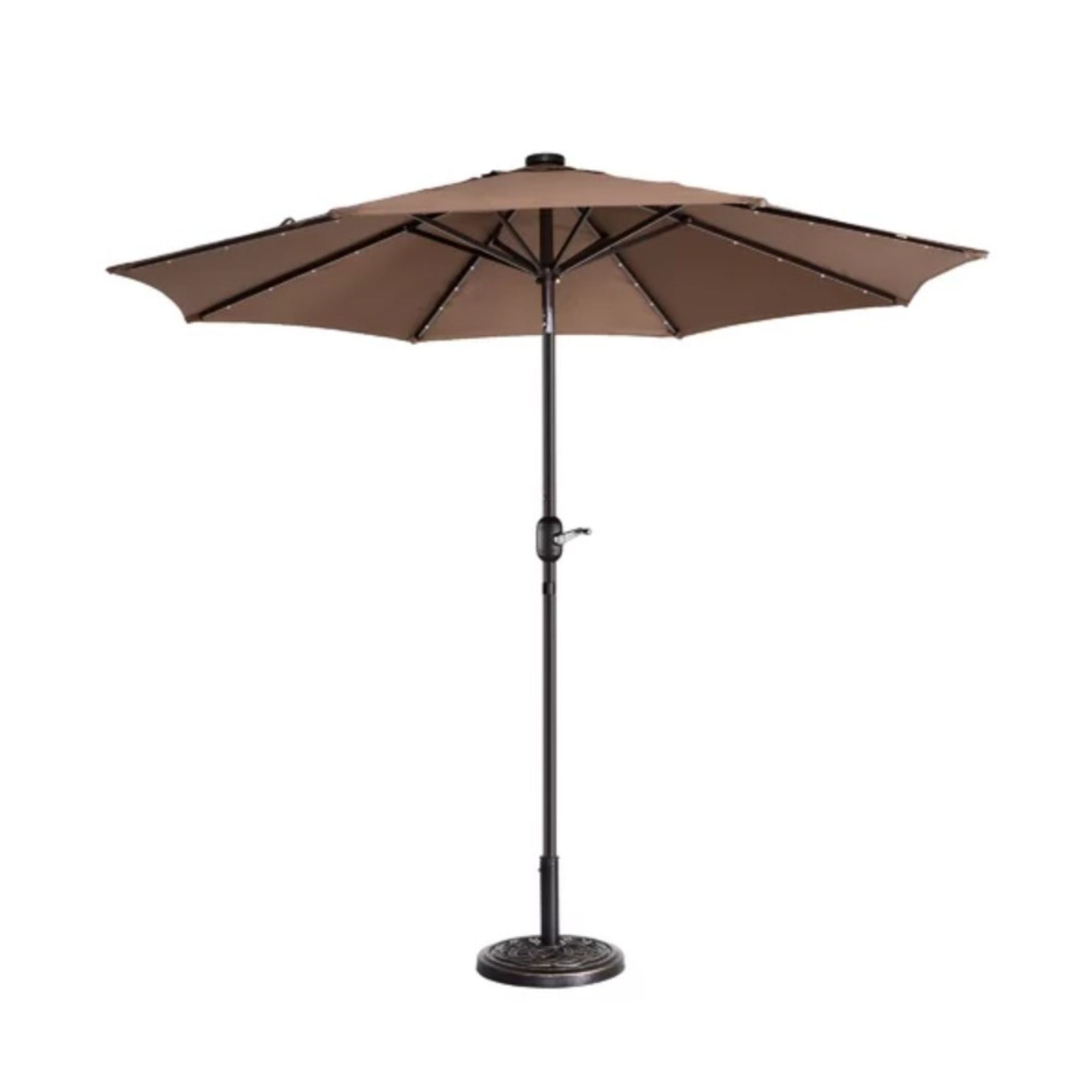
Size (ft.): Overall H7.1, open umbrella W9 x L9
Made from: Polyester and metal
Price: $87.99
This Freeport Park umbrella has a hand crank, so you can easily open it up and down whenever you need to. Not only this but it has a button tilt feature.
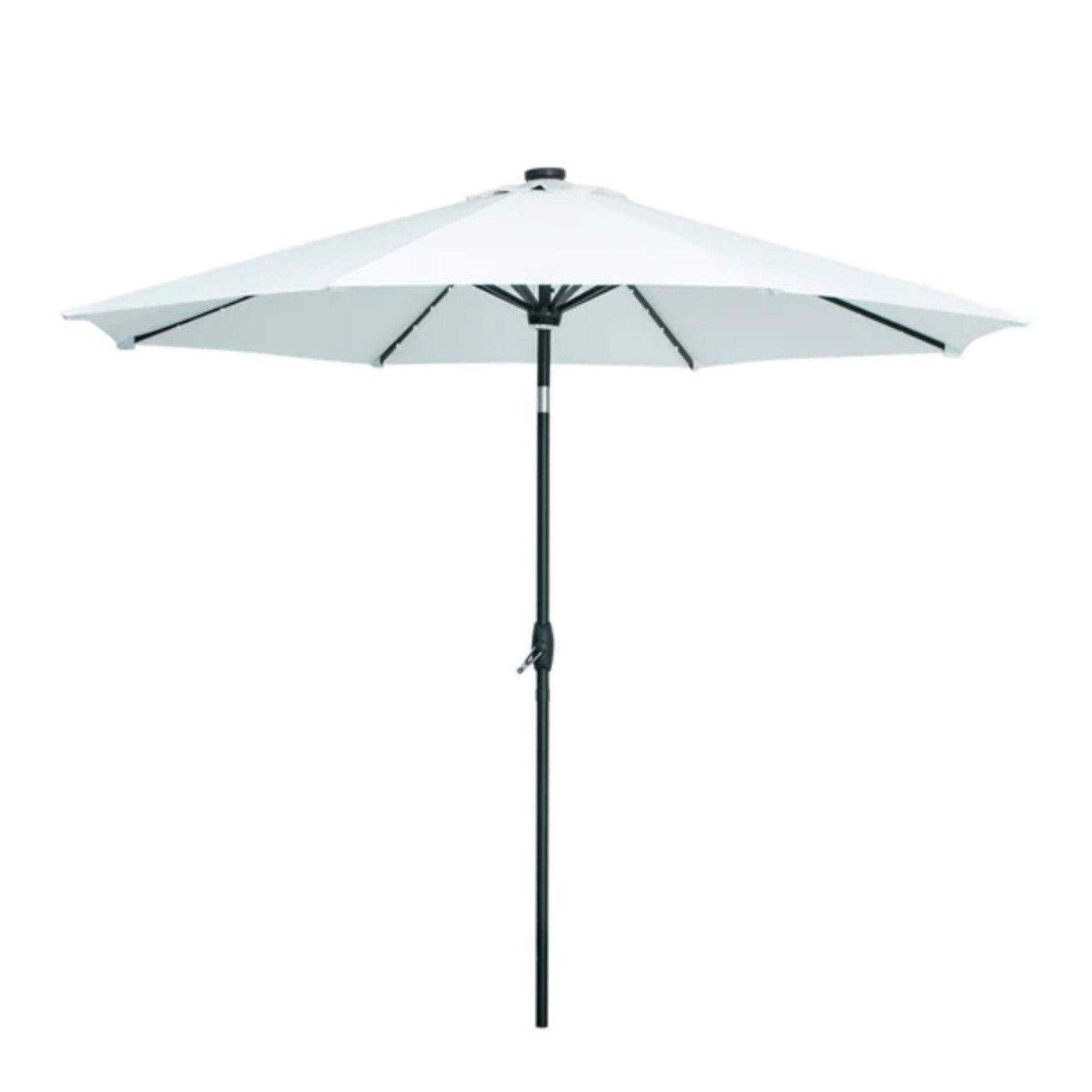
Size (ft.): Overall H8.1, open umbrella W10 x L10
Made from: Polyester and aluminum
Price: $79.99
The lights inside this umbrella are LED and charged with a solar panel, lasting 6-7 hours once fully charged. It also has 40 sparkling bright lights.
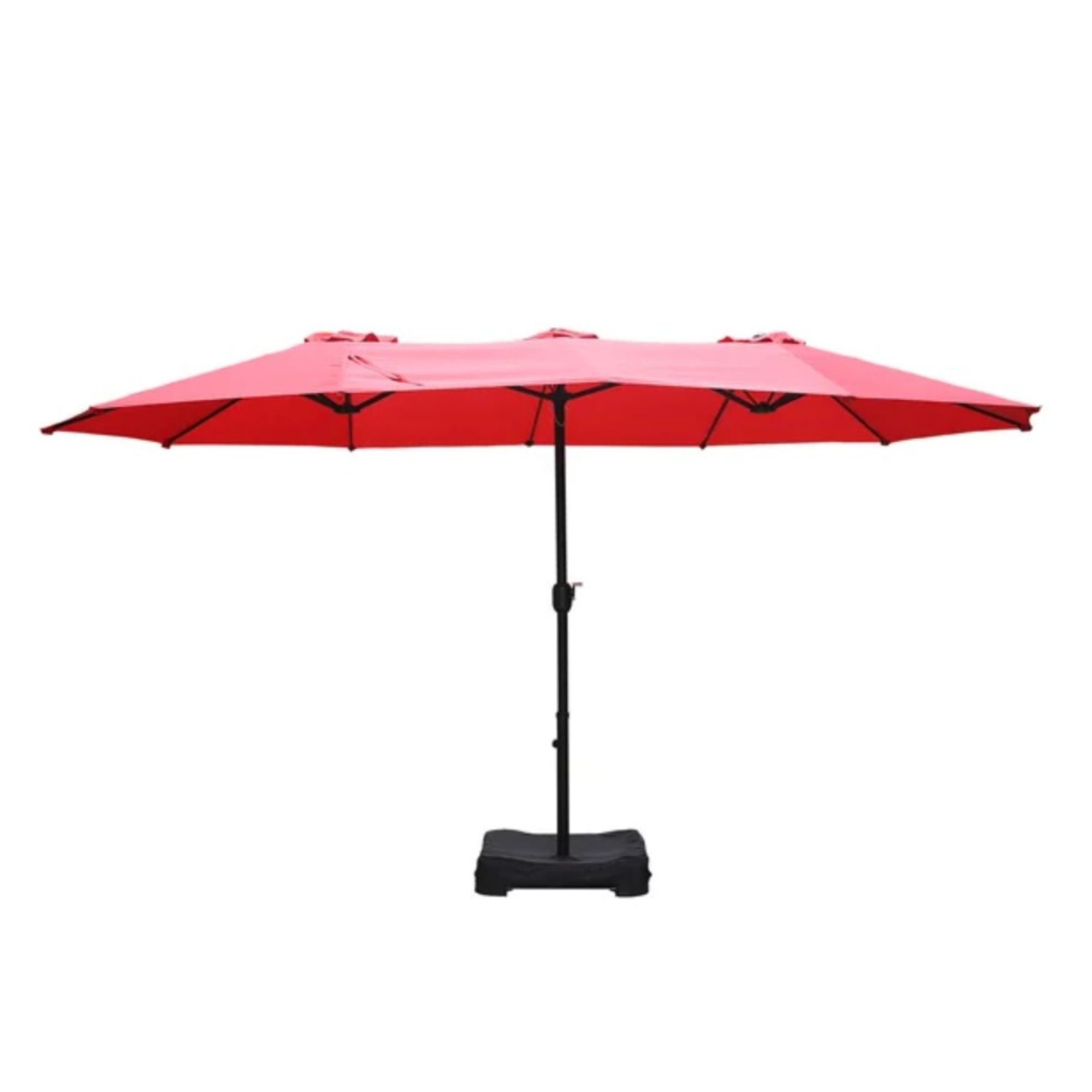
Size (ft.): Overall H7.6, open umbrella W15 x D9
Made from: Polyester and steel
Price: $159.99
This is water, mildew, and UV resistant, meaning that it can withstand the elements. Once assembled, all you need to do is crank it up and tilt it accordingly.
8. Add a privacy screen
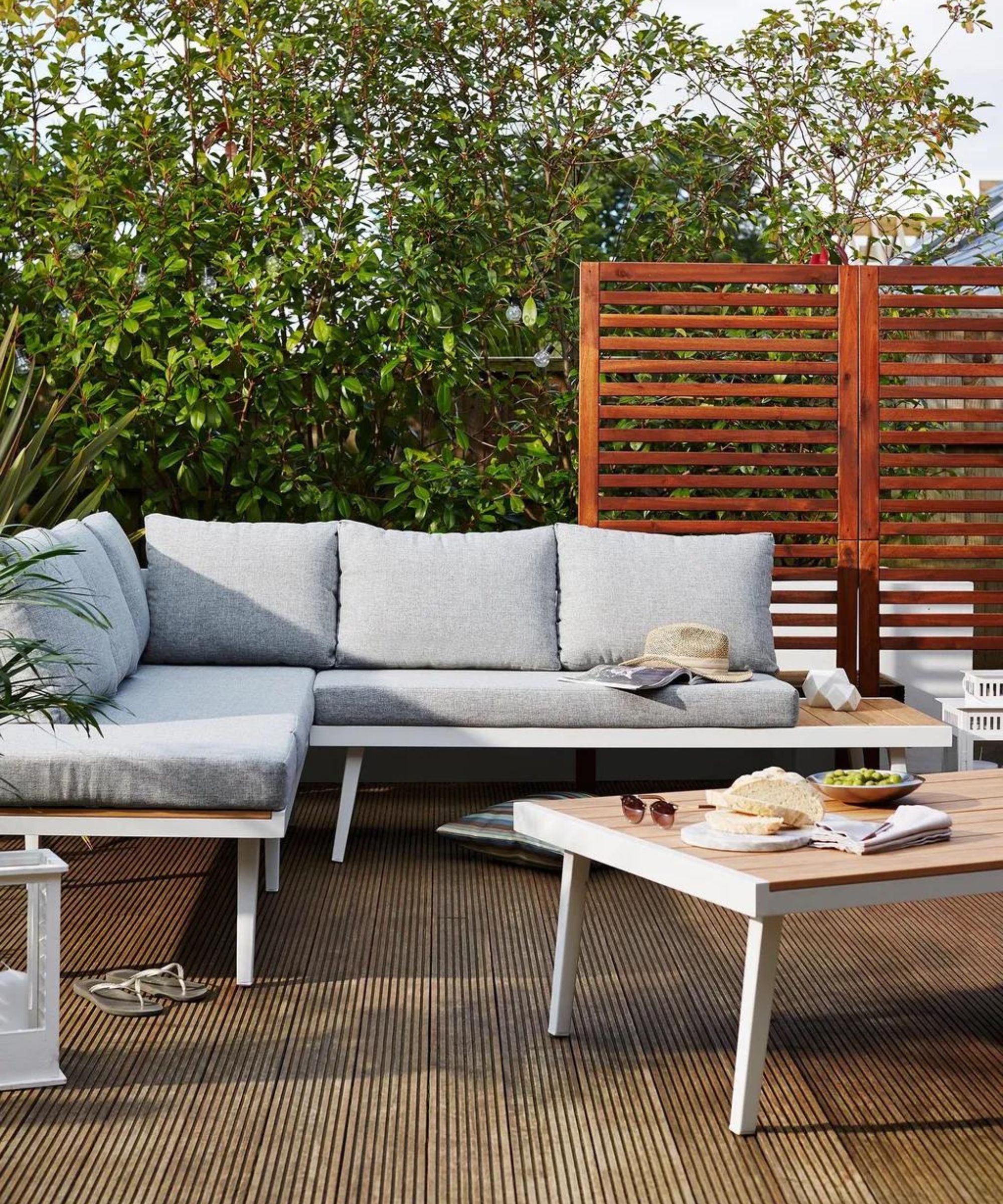
Building privacy screen ideas is a great way to use up leftover wood or even old doors.
These quirky yet functional partitions can be made solely out of old doors or wooden pallets. To brighten up a dull garden, give the screen a lick of bright paint.
If you don’t want to build your own, you can always snag a privacy screen instead (this Enclo Privacy Screen from Amazon is so mid-century chic).
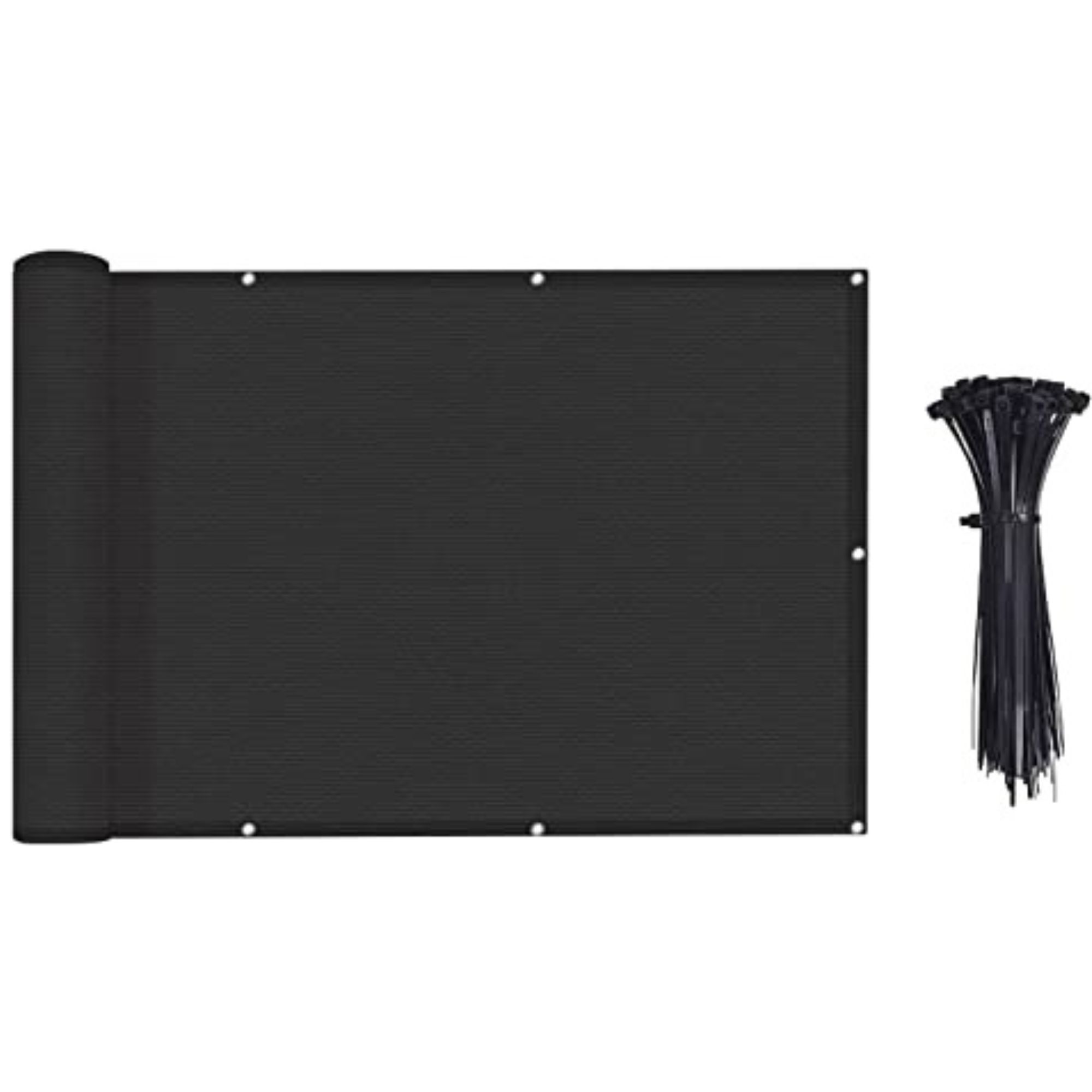
Size (in.): W10.59 x L13.35
Made from: High-density polyethylene
Price: $19.96
This all-weather balcony privacy screen is sturdy, provides shade, and is easy to install.

Size (in.): W118.1 x L59
Made from: Plastic
Price: $59.99
This verdant screen fakes the look of foliage, allowing you to have your own green screen 365 days a year. It will also make a gorgeous Instagram background for your summertime posts.
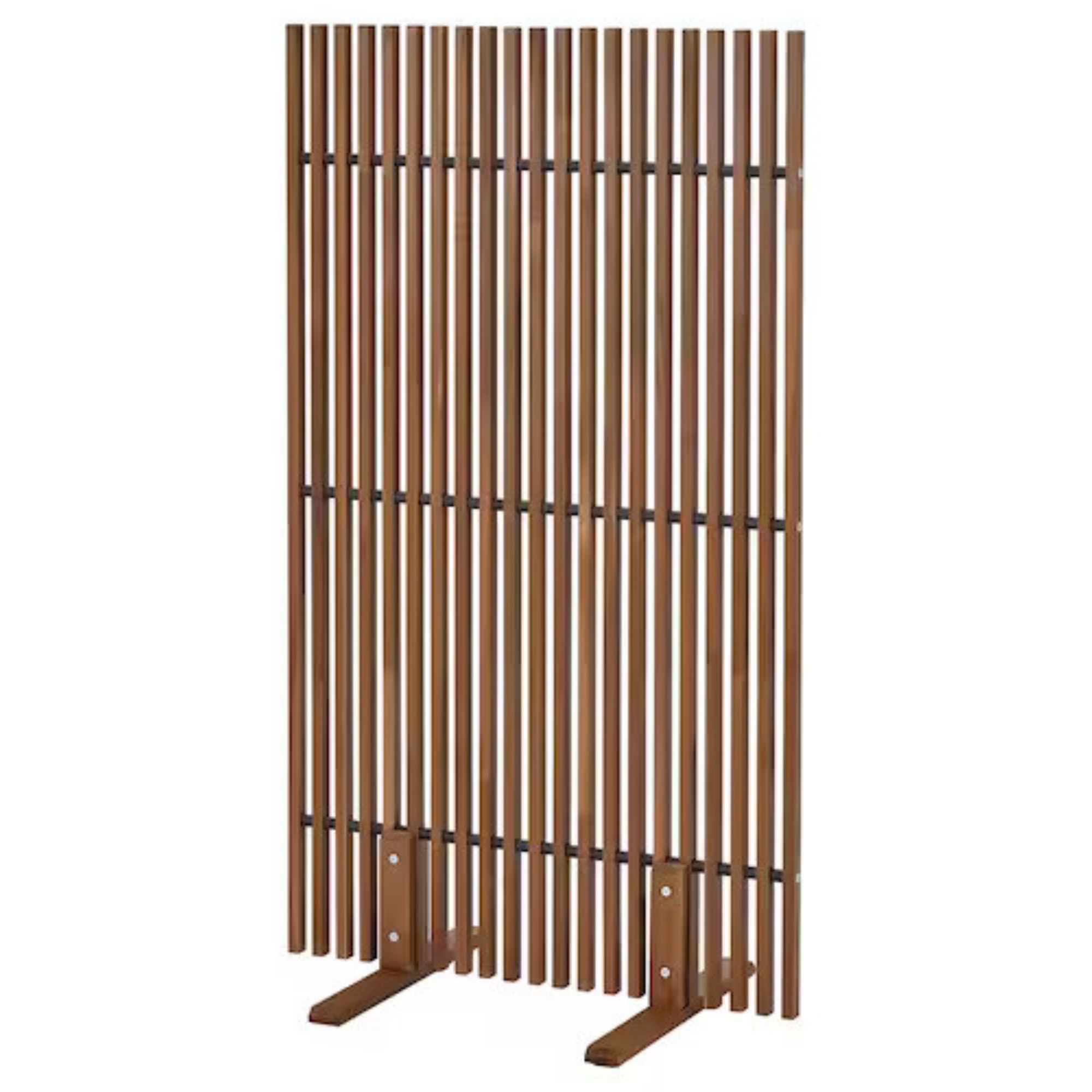
Size (in.): H55.13 x H31.5 x D19.63
Made from: Wood
Price: $95
With Scandi-chic vibes, this is the perfect accessory for alfresco dining.
9. Consider the position of outbuildings

Whether you're learning how to build a backyard room from scratch or looking to add another type of outbuilding to your backyard, think about its positioning.
This will help the flow of your space as a whole, as well as blocking out any spots you want to keep private.
10. Choose low seating
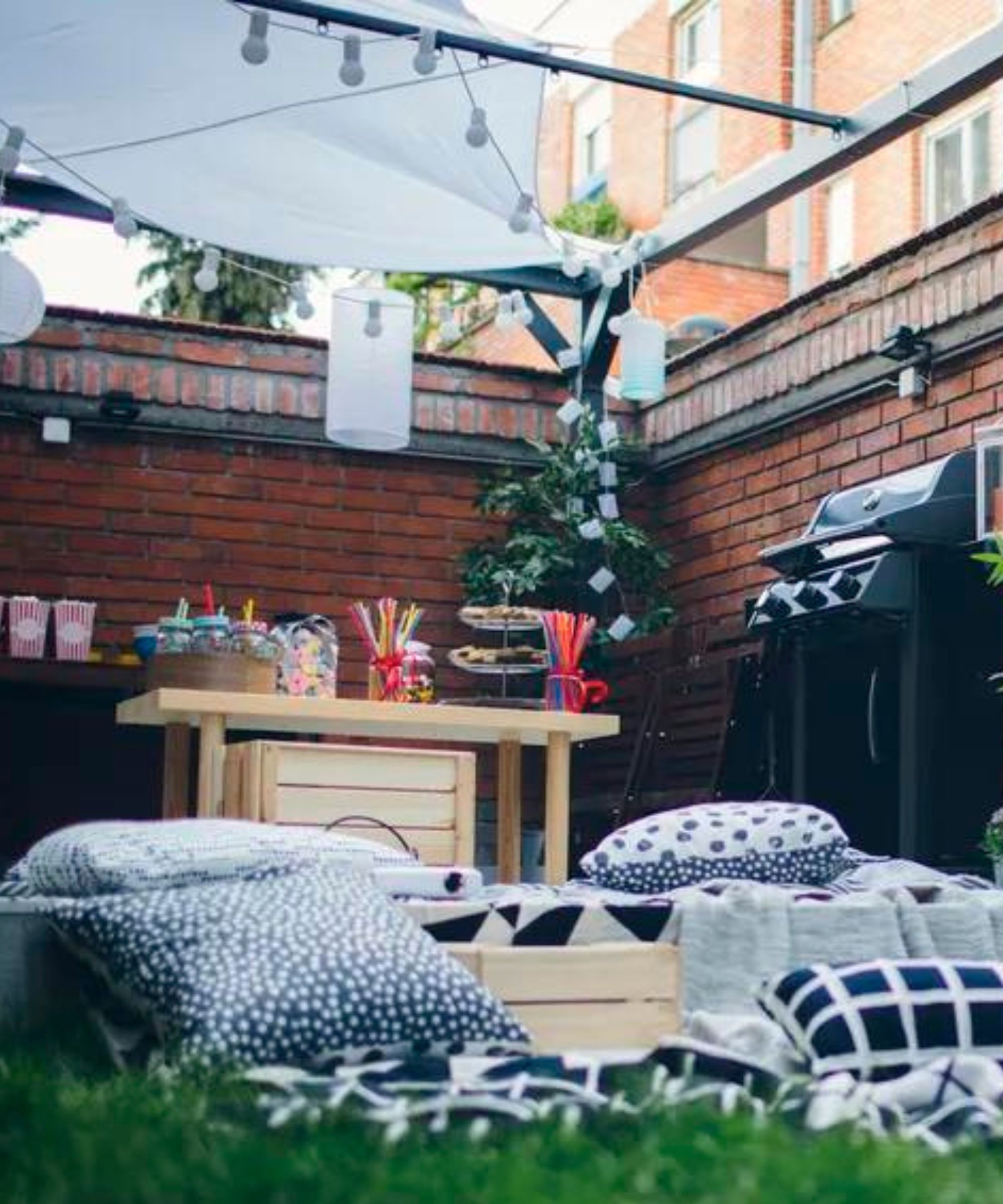
If you need privacy from up above where you are in an enclosed space, such as a backyard patio, choosing low seating is not only cozy but also a simple way to feel more comfortable from onlookers.
For example, you can throw down outdoor throw pillows as an inexpensive way to do this (we like this Mina Victory Pouf from Target).
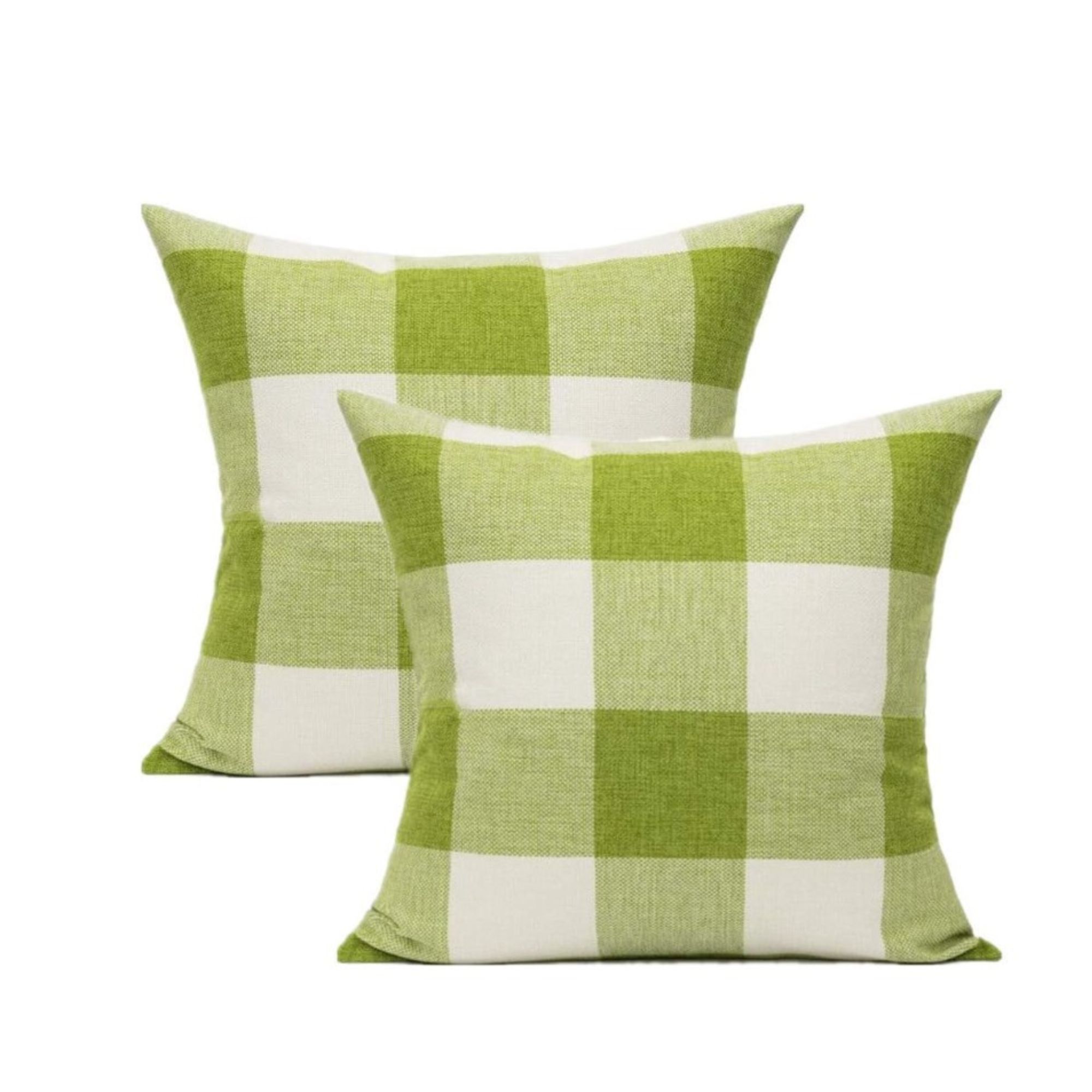
Size (in.): W18 x L18
Made from: Polyester
Price: $11.99 for two
Go for a cute cottagecore decor style with these sweet covers, which come in seven different sizes.
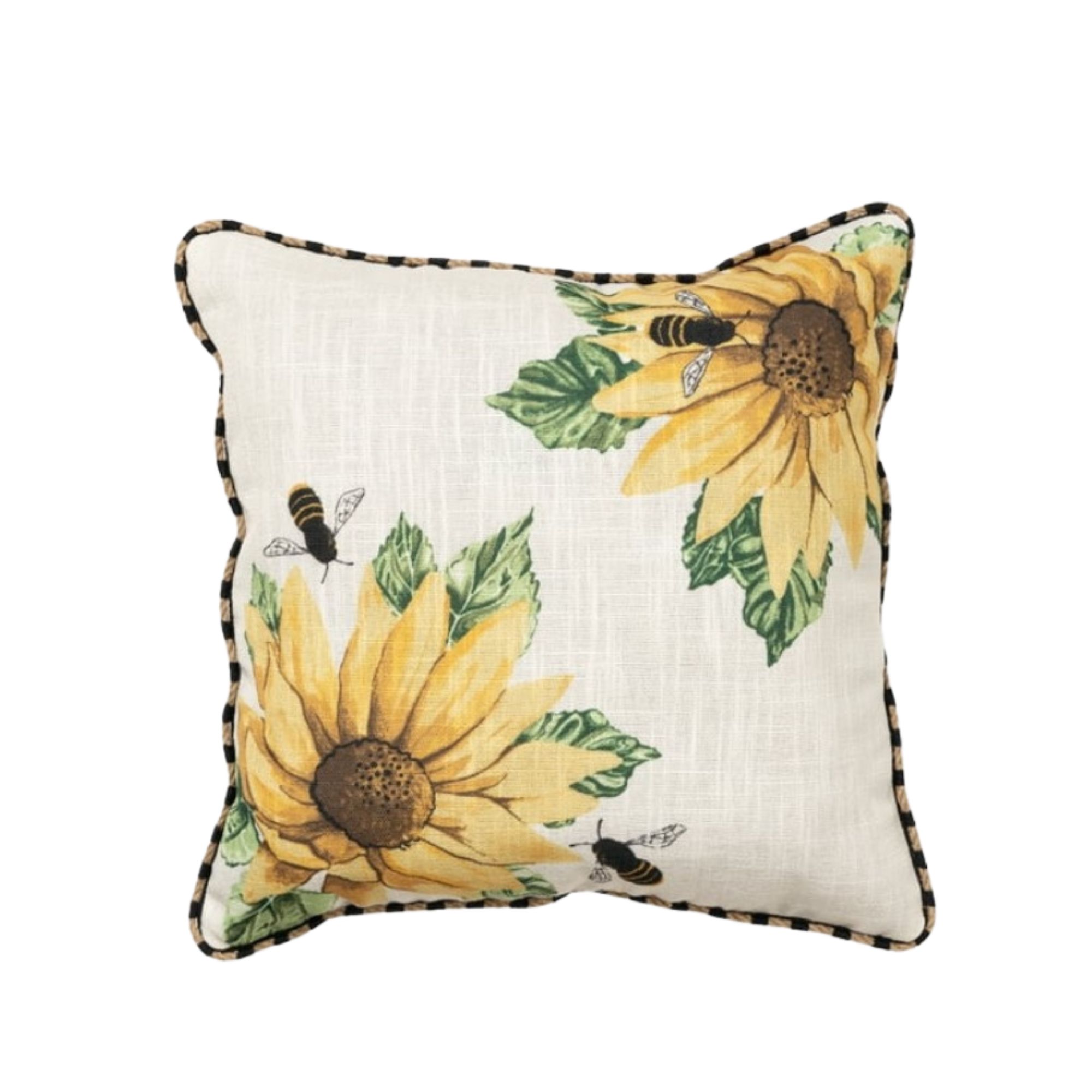
Size (in.): W19 x L19
Made from: Linen
Price: $14.47
Add serious elegance to your yard with this sophisticated pillow. The fabric is weather-resistant and can be easily spot-cleaned.
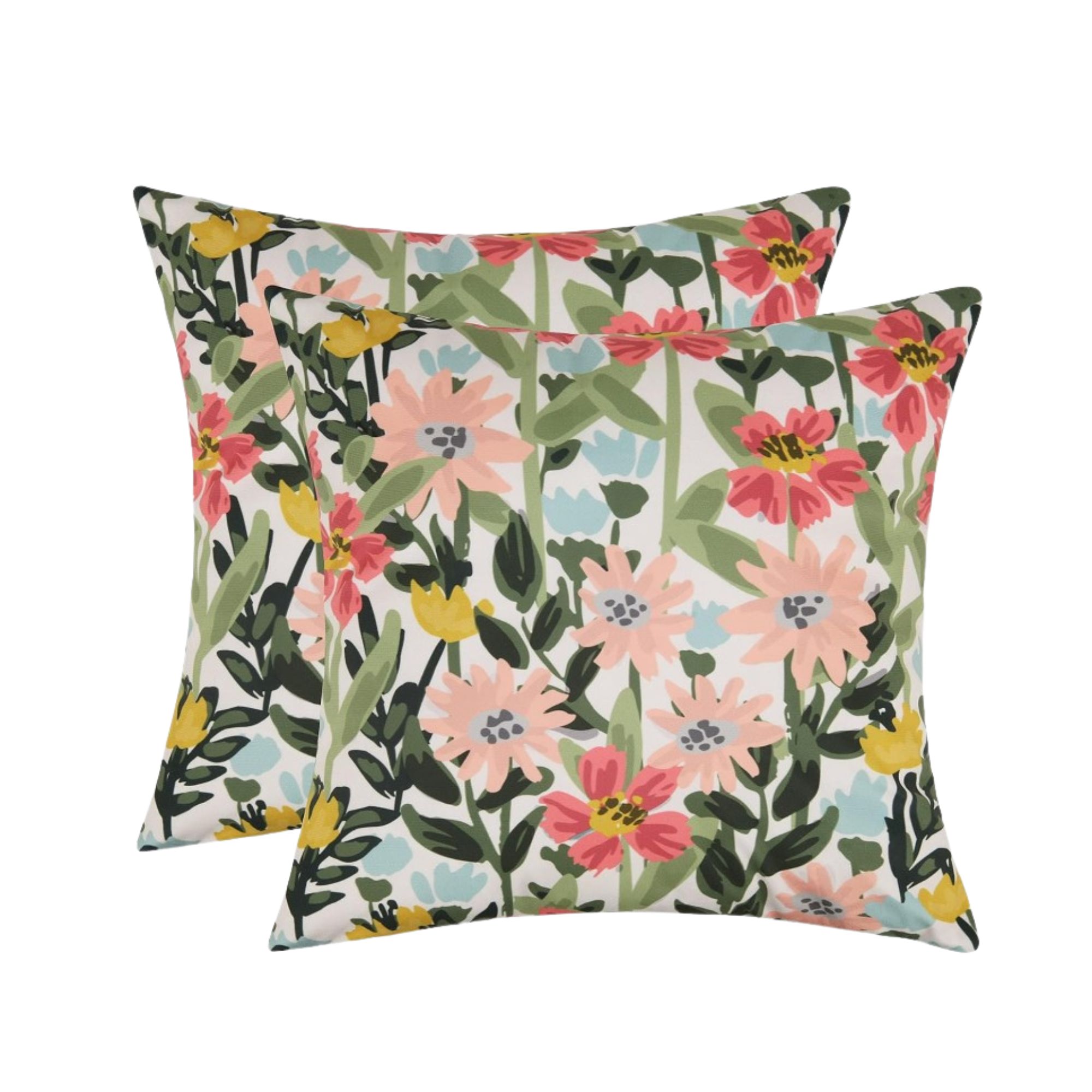
Size (in.): W5 x L5
Made from: Polyester
Price: $16.99 for two
You can use these both indoors and outdoors, so you can move them around depending on how the weather changes.
11. Choose climbers

We're a bit over traditional hedging, which can look too solid and a bit severe. Instead, consider screening off areas within your backyard using shrubs or climbing plants as opposed to blocking your whole boundary.
Perfect for areas where you’d like a more permanent privacy solution, climbers such as ivy, jasmine, clematis, and roses (these Guerney's Cecile Rose Climbers from Walmart are so pretty) offer maximum screening power without creating an overly boxed-in look.
12. Set up an outdoor cinema

One way to create backyard privacy and let the whole world melt away is by bringing an outdoor projector and screen (this Nisoo Projector from Amazon comes with a screen) in for a cinematic experience.
“This will encourage moments of solitude or socializing with loved ones away from prying eyes,” Nina adds.
Hang your screen in a spot where you want to block sightlines out, grab throw pillows, and voila — you have the perfect setup that is only yours to enjoy.
13. Plant fast-growing annuals

Want an inexpensive backyard privacy solution quickly? There's an easy answer — fast-growing annual flowers.
Consider easy-to-grow flowers such as zinnias, cosmos, and sunflowers (try these Back to the Roots Sunflower Seeds from Walmart) to plug in any gaps in your yard borders.
By late June-early July, you will have a gorgeous display that will enhance privacy.
14. Plant tall bi-annuals
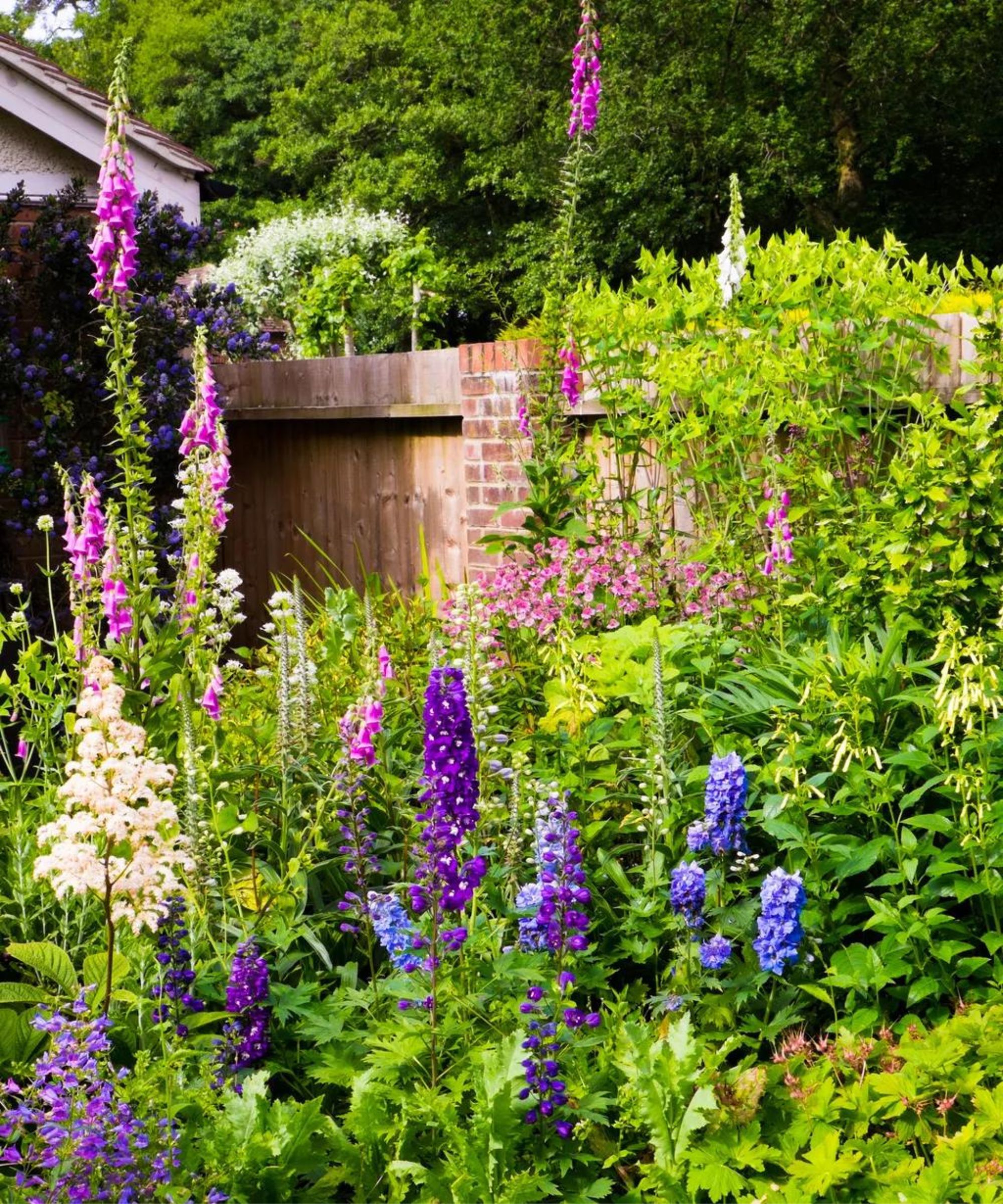
If you have a bit more patience and can wait a year, cottage garden plants such as foxgloves, hollyhocks, and lupins will grow over two meters tall — but they are bi-annuals and won't bloom in the first year.
Foxgloves (these Everwilde Farms Foxglove Seeds from Walmart are budget-friendly) and other tall-growing flowers are especially useful for blocking out views out of corners.
Consider planting them next to your garden fence for creating a more secluded effect.
15. Greenify a garden trellis
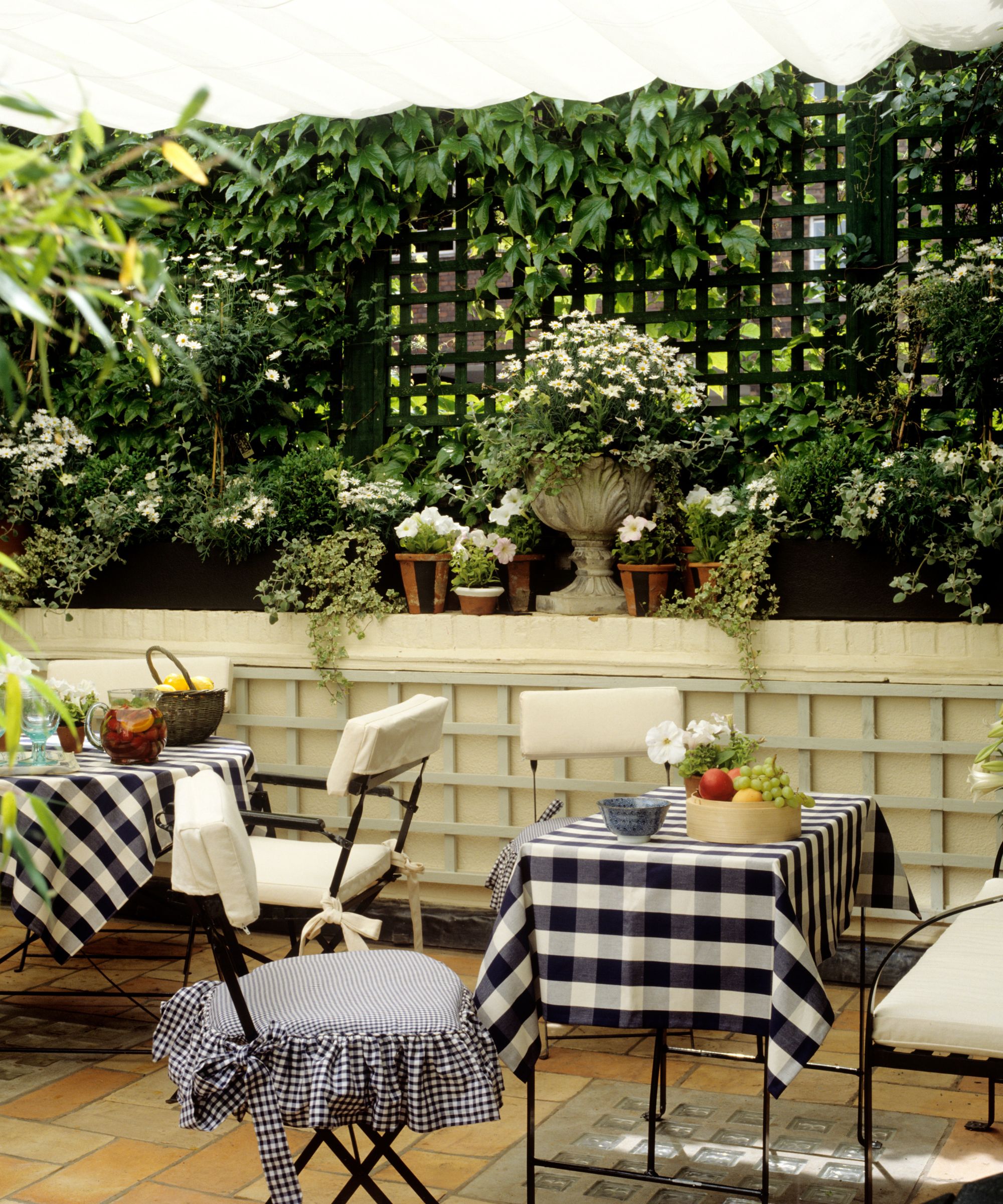
On a budget or don't want the hassle of installing new structures? You could increase your garden's privacy substantially with trellis ideas.
Remember, your backyard privacy screening doesn't have to be solid, but just a distraction to onlooker eyes and enough to make you feel comfortable and secure in your surroundings. So, a trellis enhanced with climbers is ideal (this Qenwkxz Kyoffiie Trellis from Walmart would be a great starting point).
Choose vigorous climbing species such as honeysuckle, jasmine, and clematis, and you could have a luscious green wall by next summer. The beautiful scent these plants will bring to your garden is a bonus.
16. Install a water feature
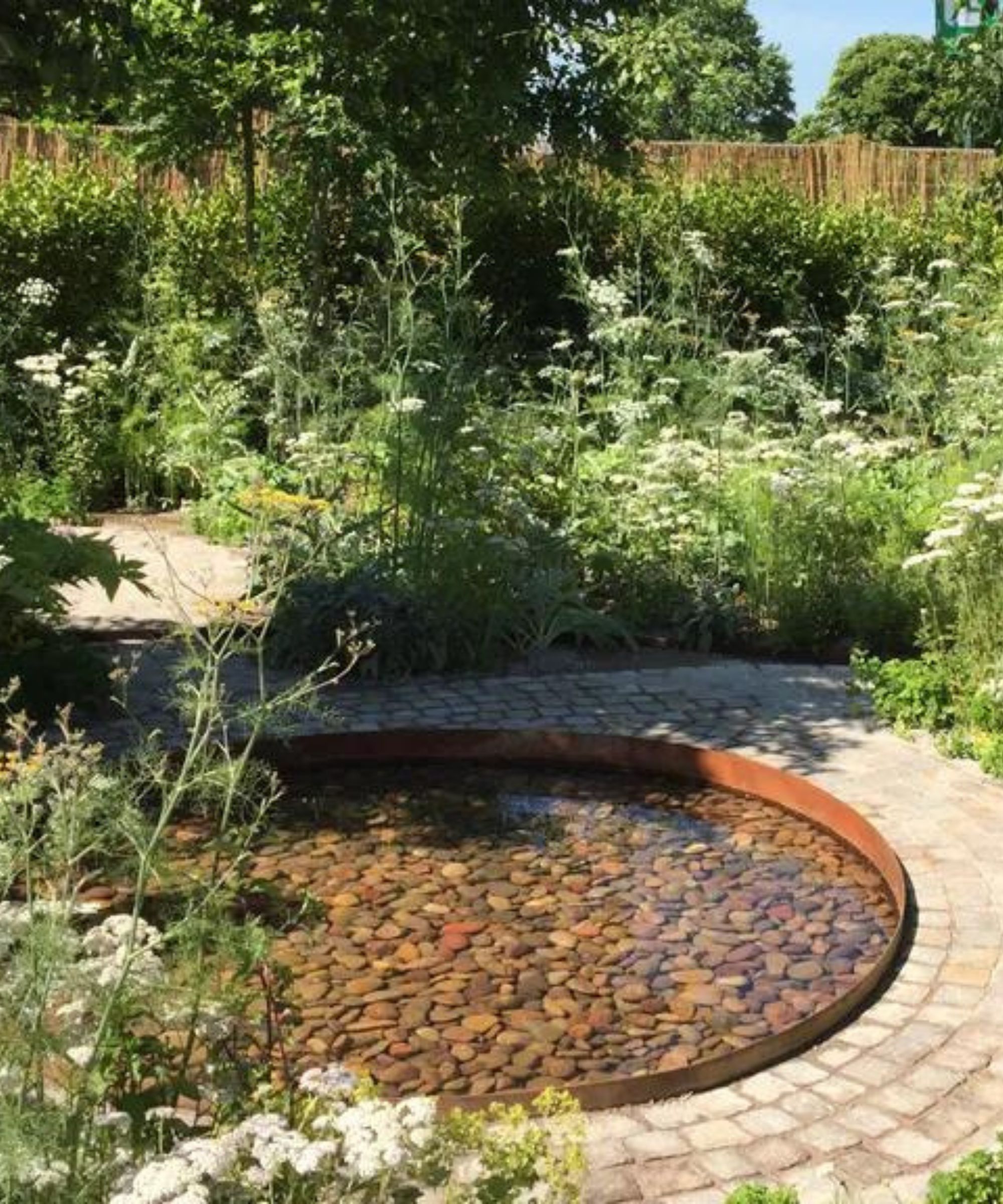
To further increase privacy in your garden, consider installing a large backyard water feature.
Nina says, “Incorporate water features such as fountains, ponds, or cascading waterfalls into your backyard design to create a serene ambiance while masking unwanted noise and distractions from the surrounding environment.”
These can be a little expensive, but if you're looking for a budget-friendly one, shoppers love this Melliful Solar Paneled Water Fountain from Walmart.
17. Add a pergola
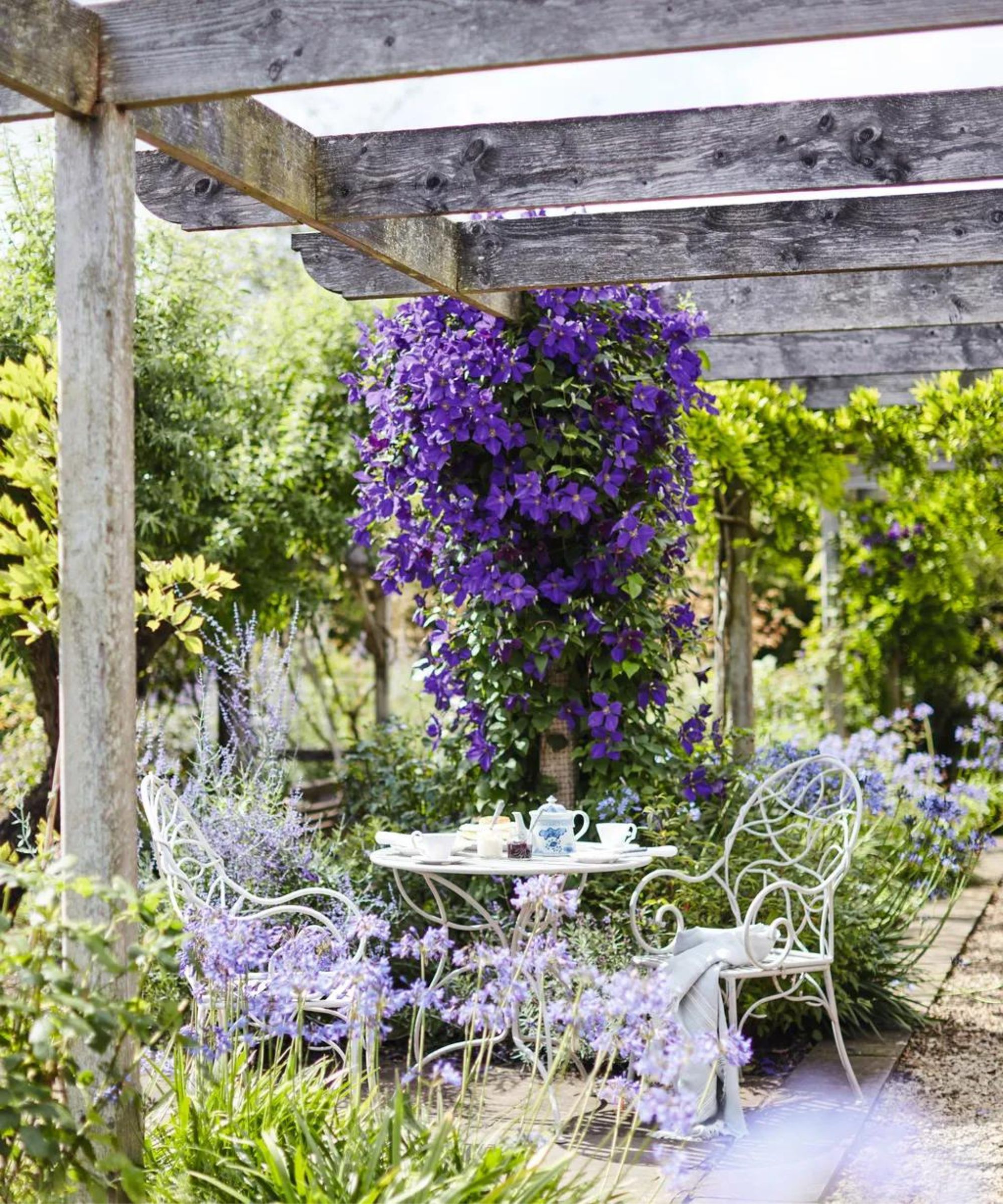
A pergola will provide plenty of backyard privacy. Even better, if you enjoy DIY, you can build a pergola yourself.
Add some hanging baskets (we like these Nutsaak Hanging Baskets that are Amazon's Choice) full of petunias, ivy, and lobelias to create even more seclusion.
18. Maximize bamboo
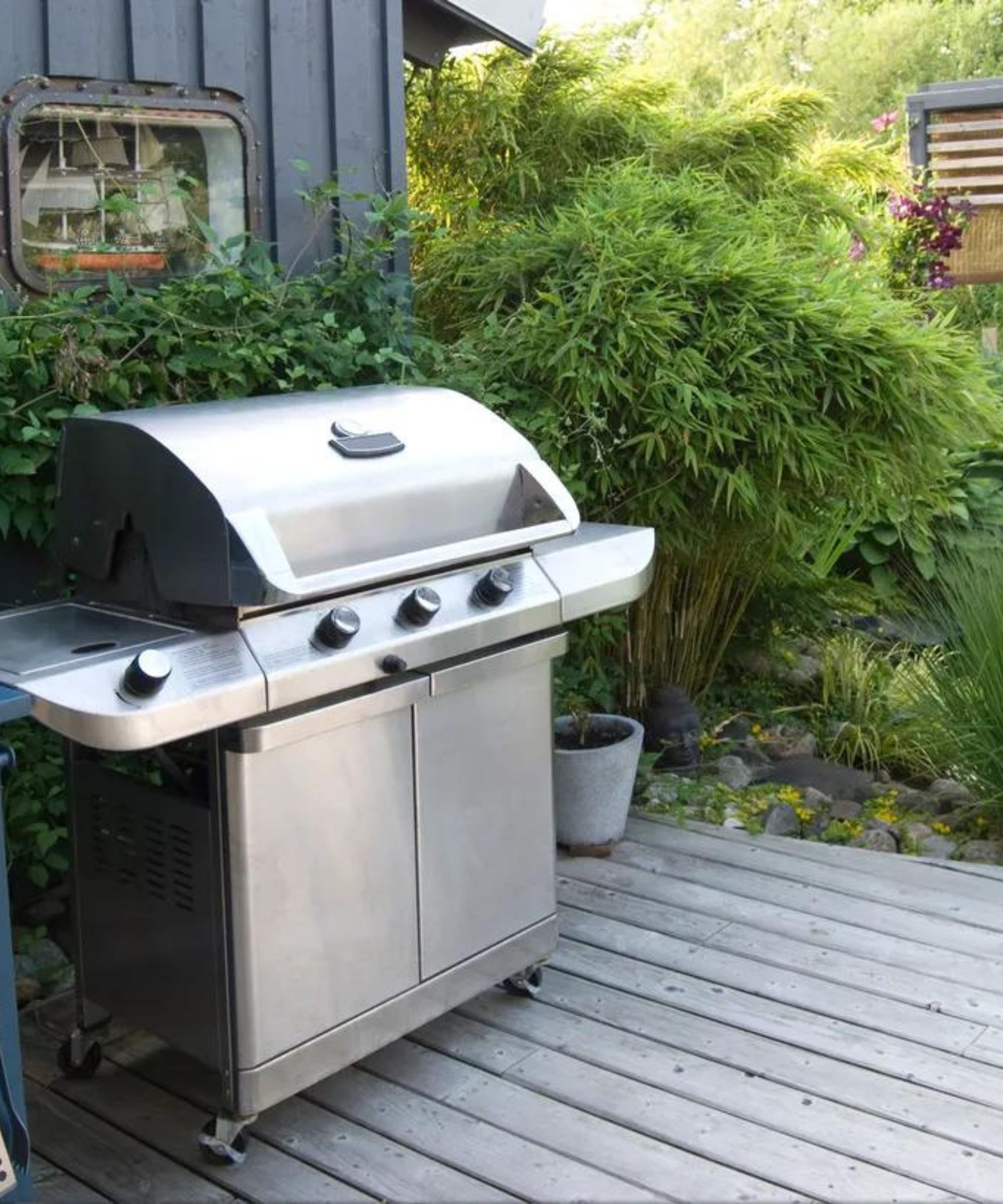
Bamboo is easily the best plant to grow if you want to enhance your backyard privacy. It's beautiful, most varieties are evergreen, and it grows tall very fast.
“Strategically placed greenery not only adds visual interest and texture but also acts as a natural barrier, shielding your space from neighboring eyes,” says Nina.
Many varieties will grow up to 10 meters tall if you let them, and you can achieve this natural tall screen in a matter of a couple of years. The only thing bamboo needs to thrive is plenty of water, so don't forget to water it during periods of drought.
19. Add curtains
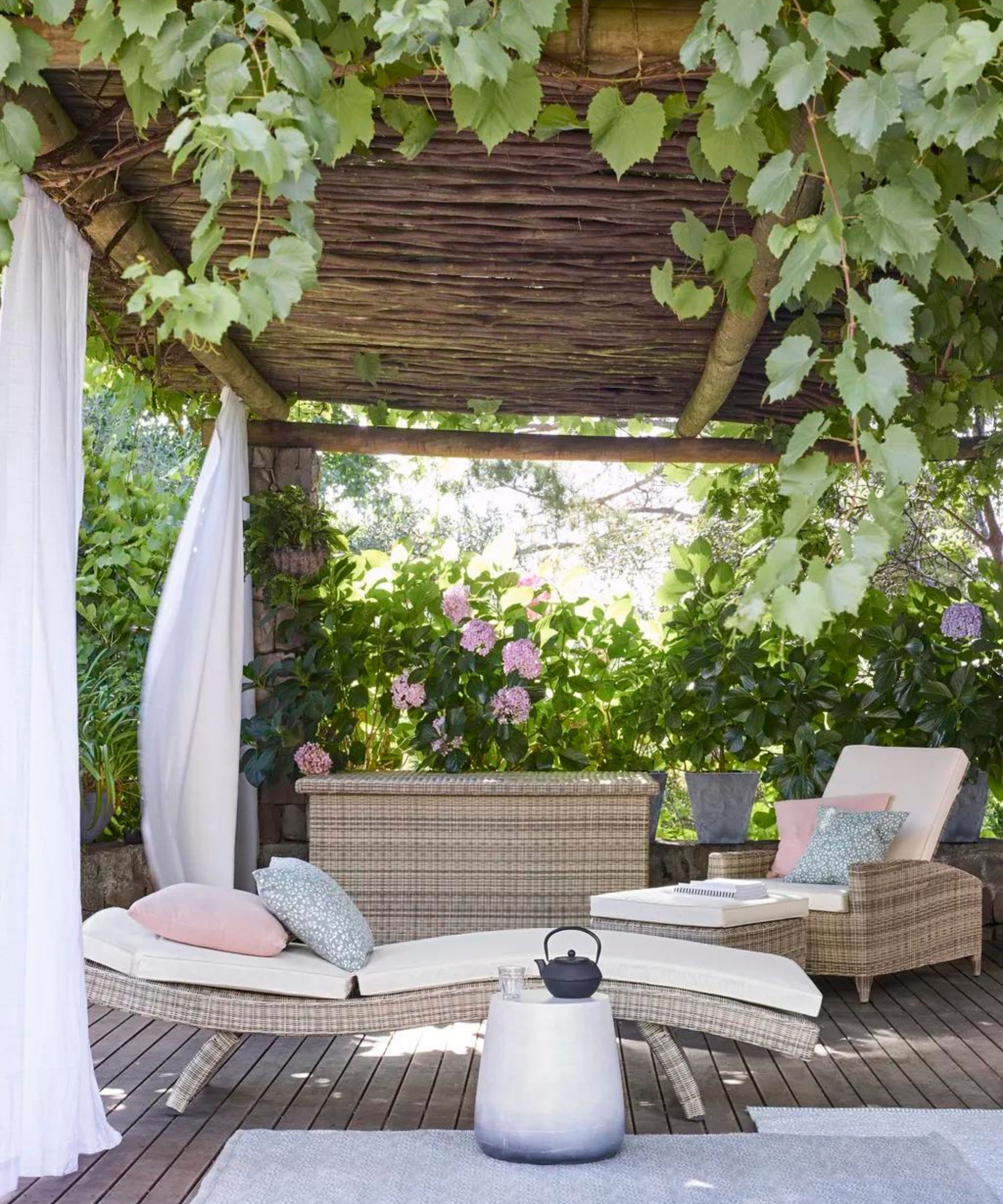
For the perfect outdoor living area where you want backyard privacy from all angles, adding stylish curtains to a covered spot will not only look gorgeous and very chic but it will also mean that when you want more privacy.
We love these hotel-style Breakwater Bay Exclusive Home Curtains from Wayfair. Just be sure to stash them away when the weather looks like it will take a turn for the worse.
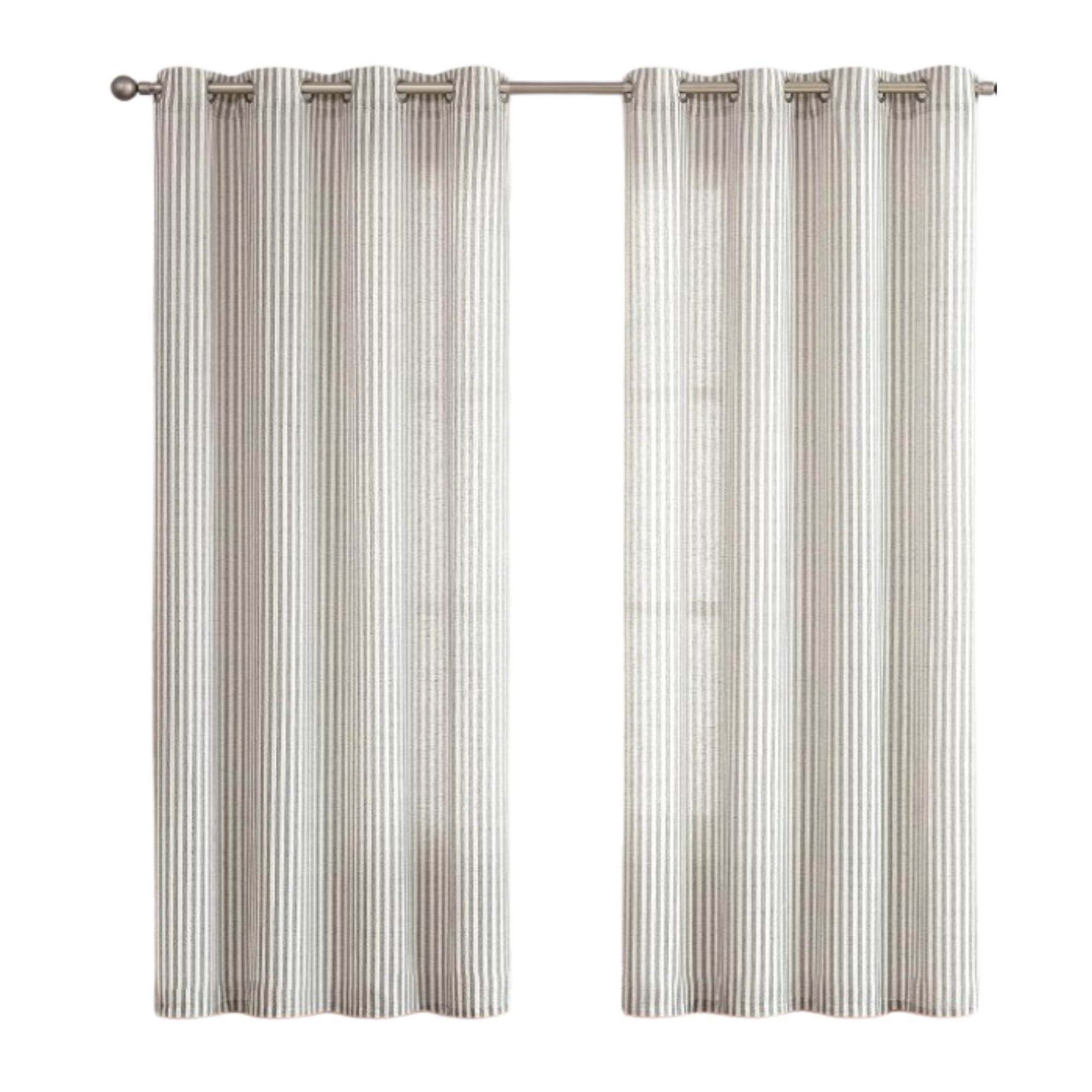
Size (in.): L84
Made from: Linen, polyester
Price: $36.99
Add a chic touch to your backyard with these pin-striped curtains.
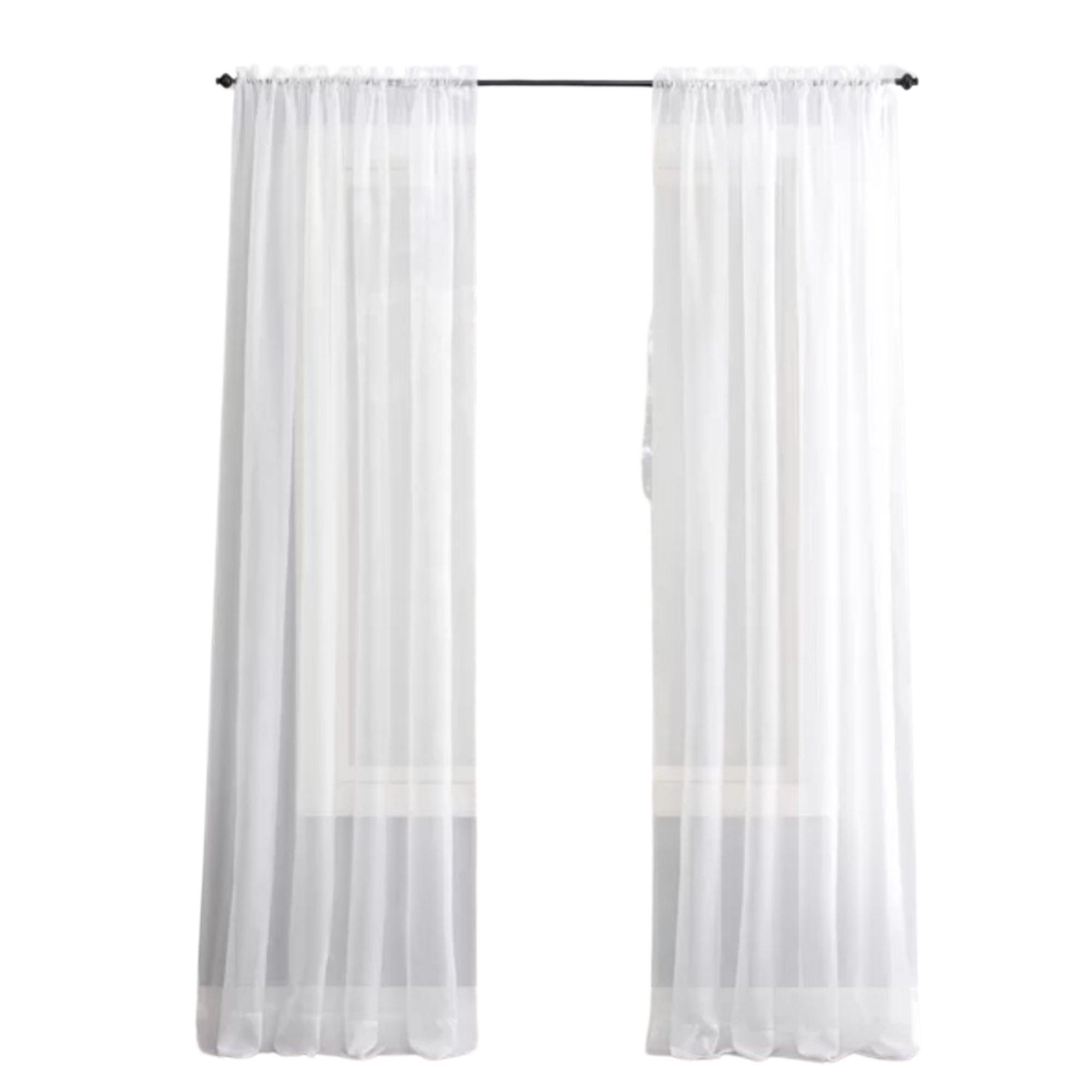
Size (in.): H54 x W59
Made from: Polyester
Price: From $7.94
Give your backyard an airy, graceful feel with these billowing, budget-friendly curtains.
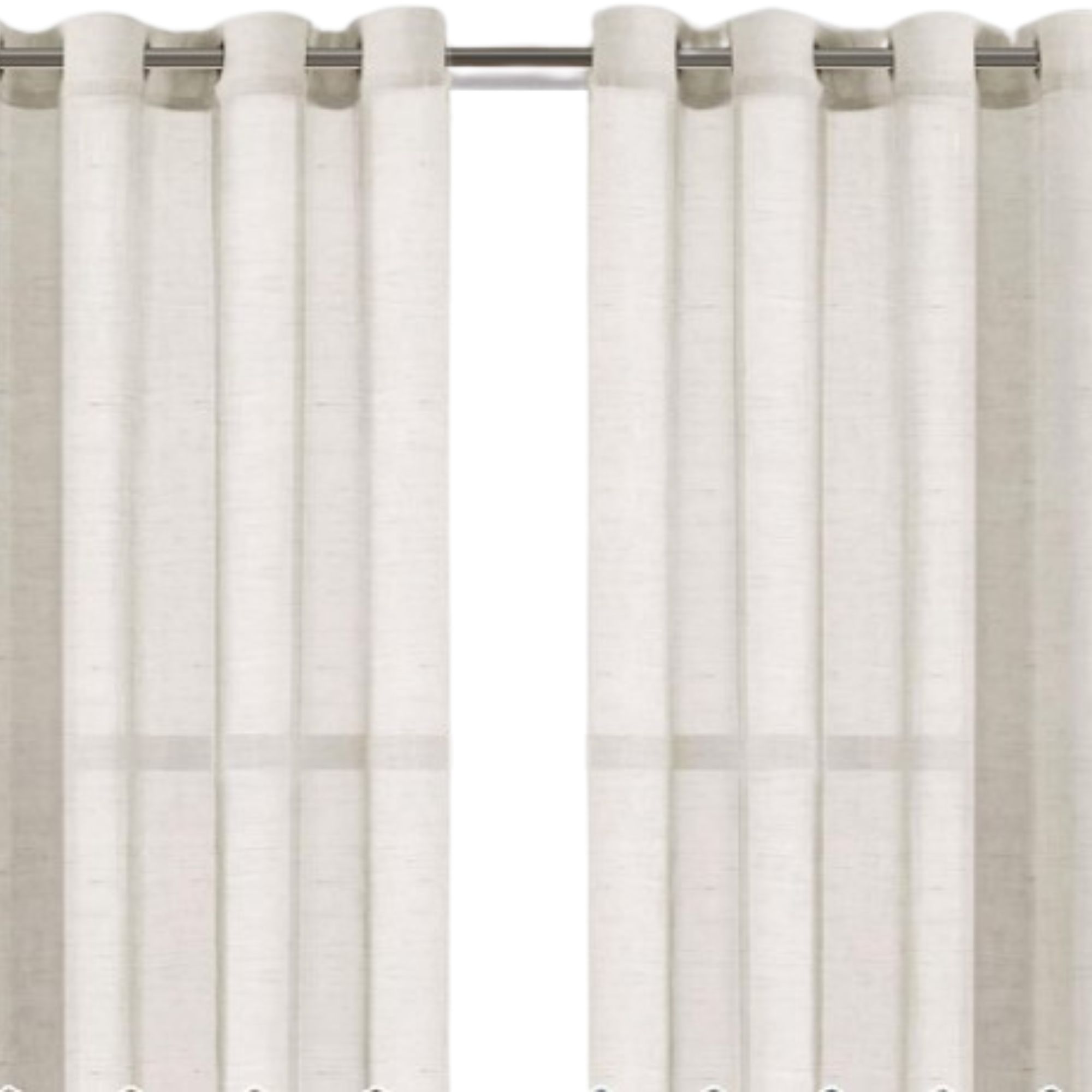
Size (in.): W52 x L84
Made from: Linen
Price: $19.90
These come in eight different sizes, so you can pick whatever length you need for backyard privacy.
20. Consider a potting shelter

It's not quite a shed, and it's not quite a wall, but something between the two.
A potting shelter will provide you both with backyard storage and a dedicated space for potting plants.
“Strategically placed hardscaping elements can provide both visual interest and privacy, defining distinct areas within your outdoor space,” Nina explains.
We adore this shelter above — you could try building something similar yourself if you've worked with brick before.
21. Go overgrown
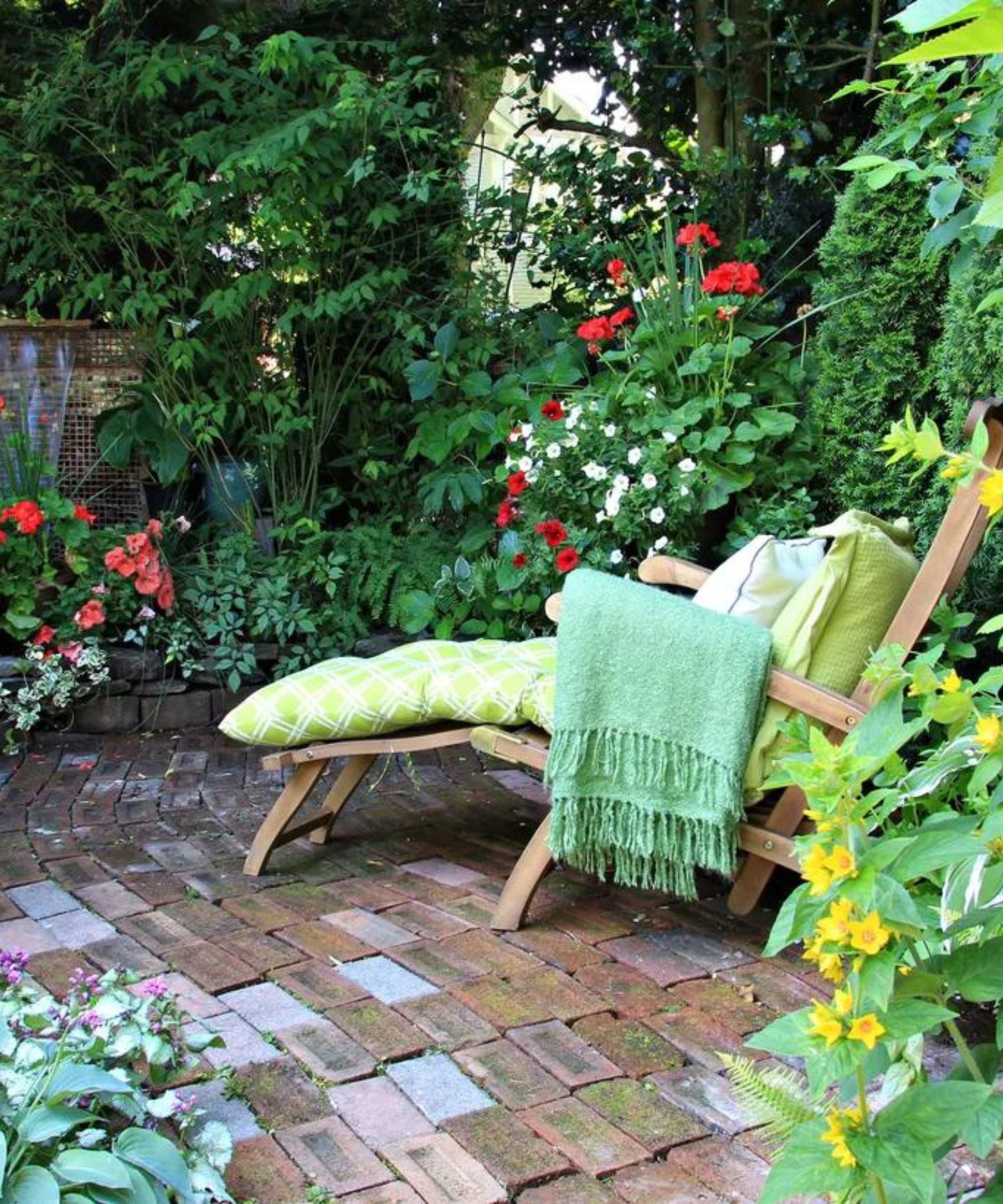
Sometimes the best strategy is to just let nature do its thing. Let your plants grow more naturally, resisting the urge to prune everything.
You will be rewarded with a luscious, secluded garden where you may not need any manmade screening at all.
22. Vary table heights
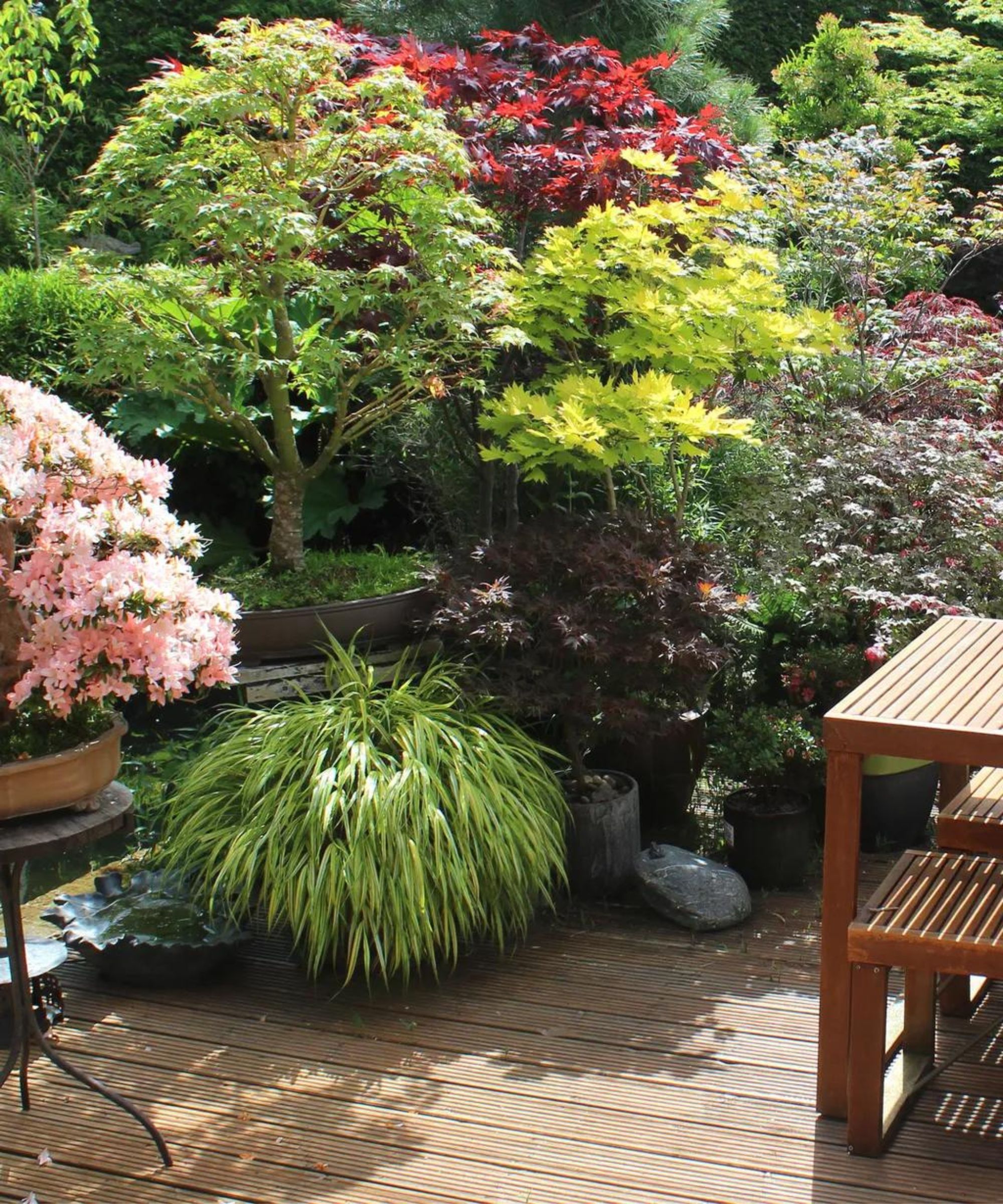
The most common problem gardeners have with natural screening as backyard privacy ideas is that it's uneven, with visible gaps at awkward heights.
This is especially common if all your plants are around the same age, which will mean that you're lacking density in the middle of your natural screening scheme.
If this is the case — plant stands and garden tables to the rescue! Use the best patio furniture to adjust the height and balance out the look of your living screen (for example, place some plants on this Costway Patio Round Table from Walmart).
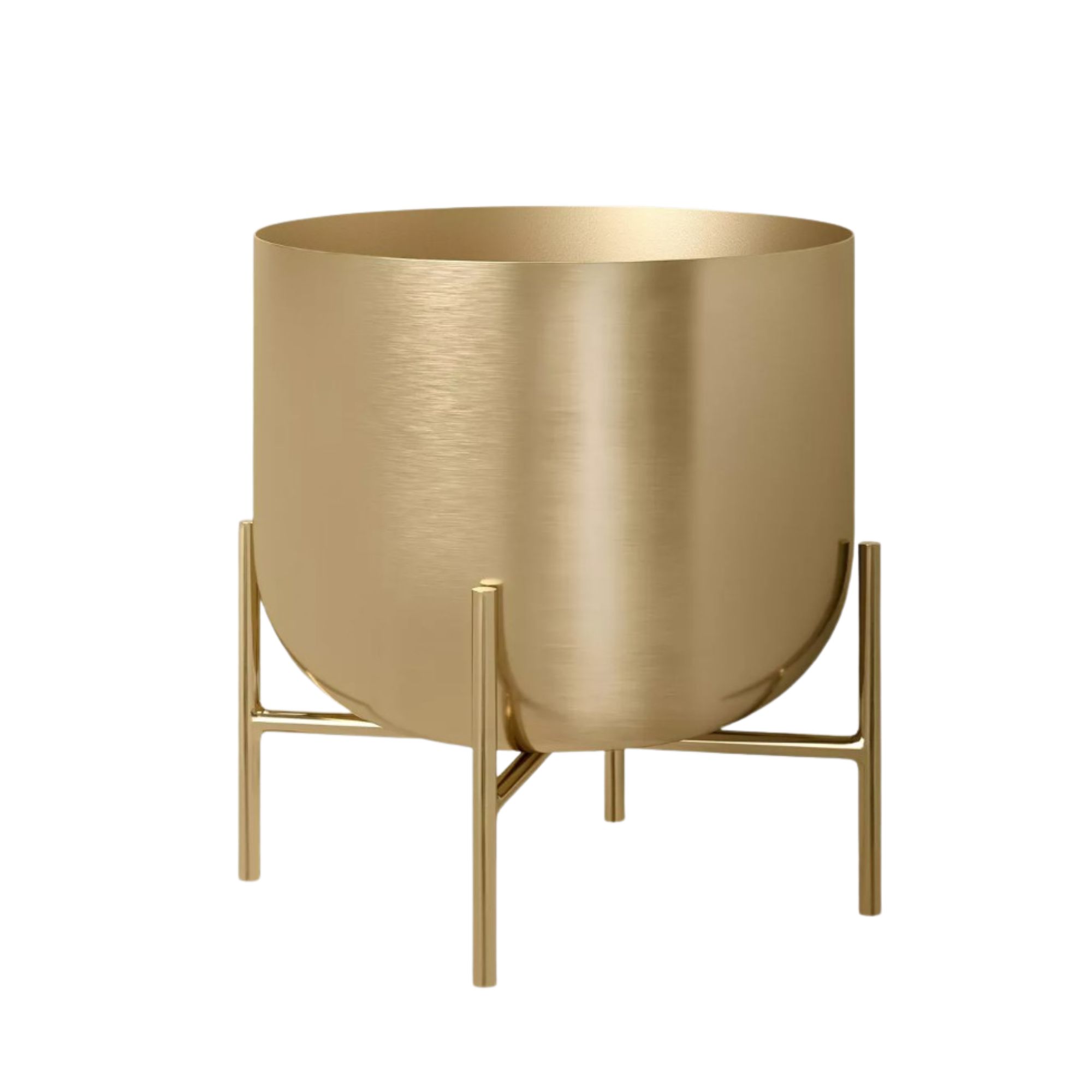
Size (in.): H11.87 x W12 x D12
Made from: Iron, steel
Price: $37.50
Make your outdoor space shine with this pretty planter. You could also fill this with the best indoor plants when the weather turns.
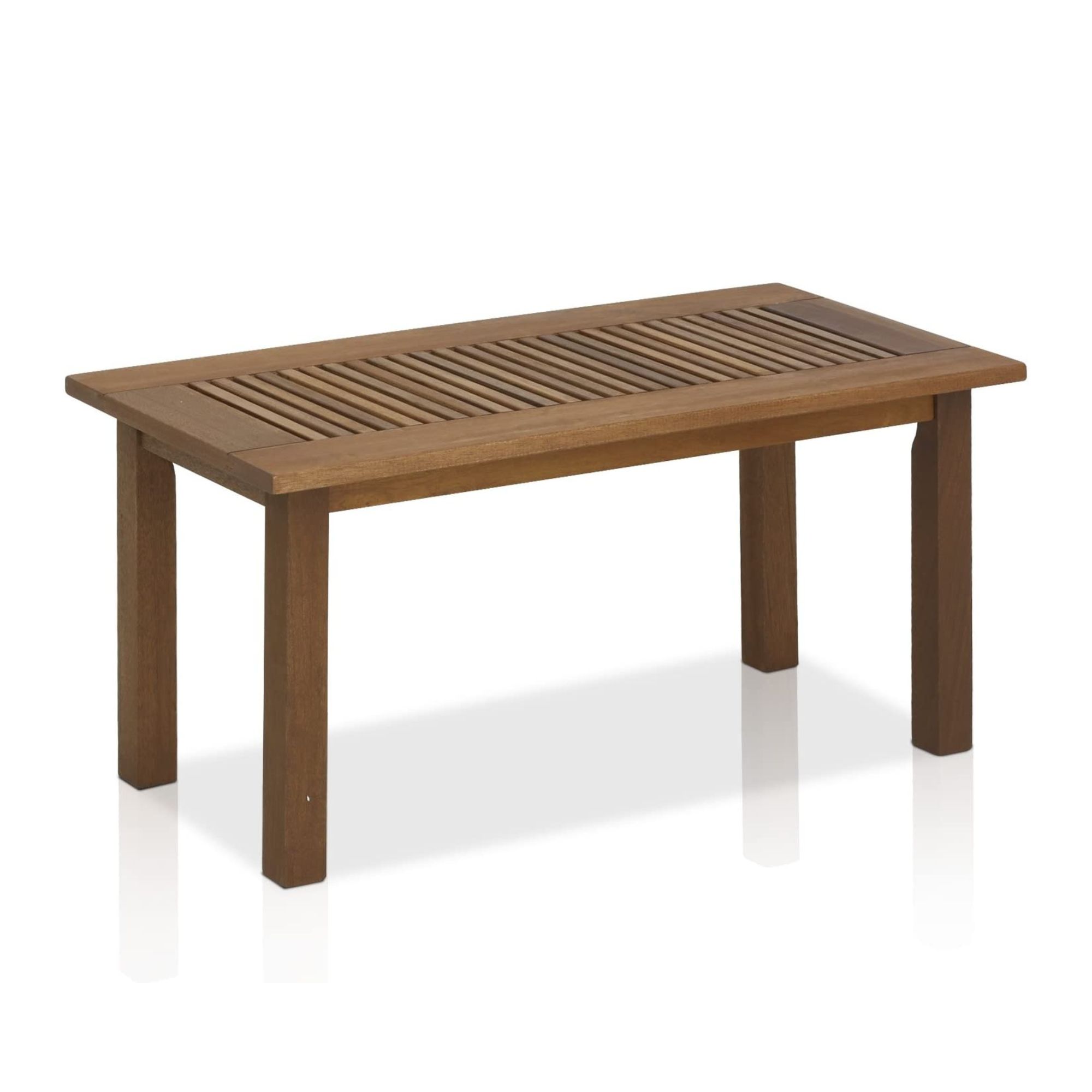
Size (in.): H16.9 x W35.2 x D17.3
Made from: Meranti wood
Price: $46.57
We think this table is the perfect budget option for renters who don’t have oodles of cash to transform their outdoor space.
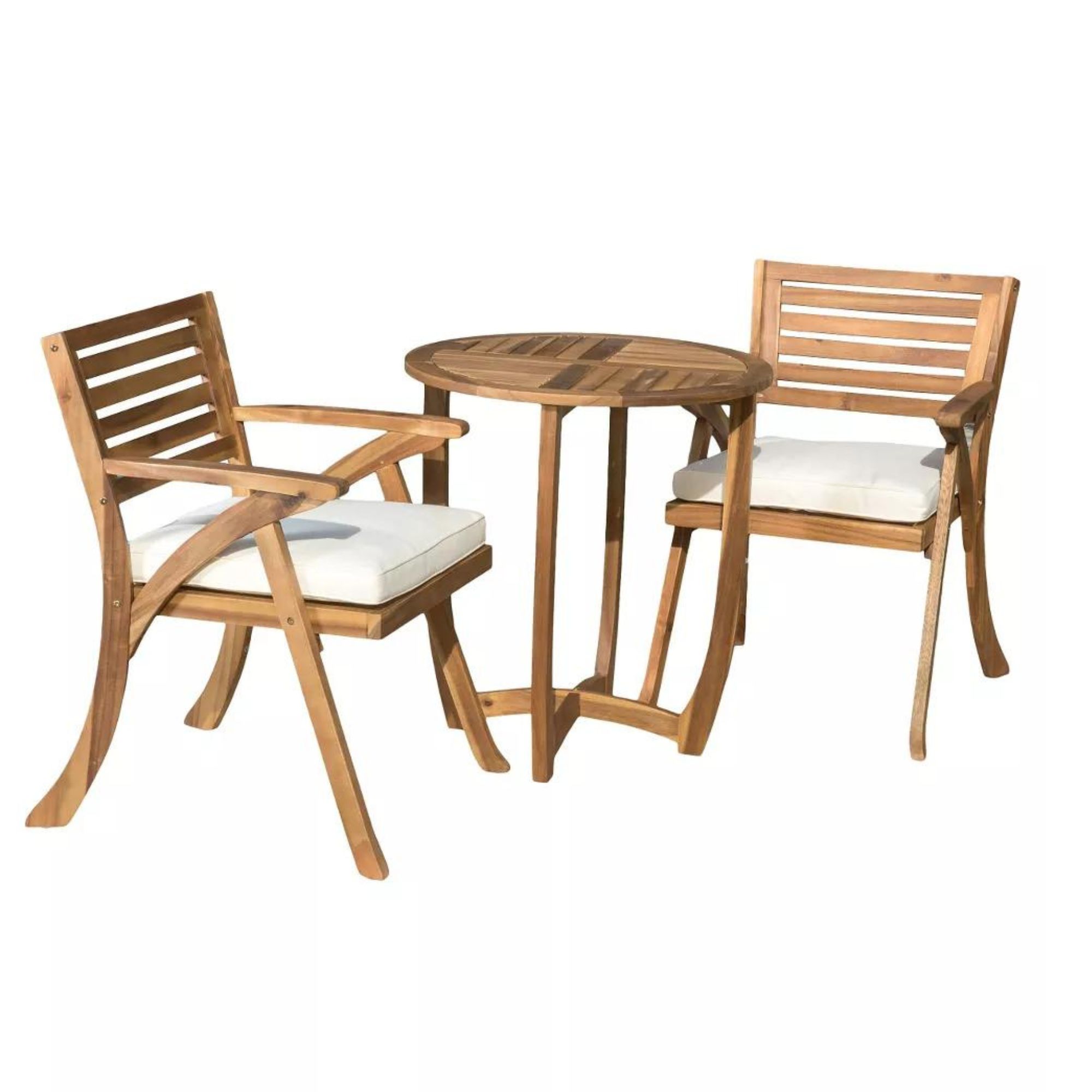
Size (in.): H34.25 x W27.25 x D24
Made from: Acacia wood
Price: $227.99
This would look perfect on a small patio or even on a balcony, and offer a neat nook for drinking your morning iced coffee.
FAQs
What are the best ways to add backyardprivacy on a budget?
Choosing simple ways to increase privacy outdoors like planting and DIY can make this job really budget-friendly and nonetheless effective.
Always start by assessing where you really need privacy and consider both temporary and permanent options to suit your needs and backyard's orientation. This will make it a lot easier to find a happy medium.
How can I improve garden privacy in a shared garden?
Shared backyards are often overlooked from above as well as from the sides. If you have neighbors living above you, you may need to invest in a covering or awning in order to keep your portion of the shared outdoor space private.
Transforming your backyard into a private oasis is a rewarding endeavor that enhances both the beauty and functionality of your outdoor space.
“By incorporating a combination of greenery, architectural accents, water features, and defined outdoor rooms, you can create a secluded retreat that offers respite from the outside world,” Nina finishes by saying.
Once you’ve finished adding privacy options, you can add stylish patio decor ideas to your space to tie the whole landscape together, and check out the backyard privacy mistakes to avoid.
Anna is a professional writer with many years of experience. She has a passion for contemporary home decor and gardening. She covers a range of topics, from practical advice to interior and garden design.
- Eve SmallmanContent Editor